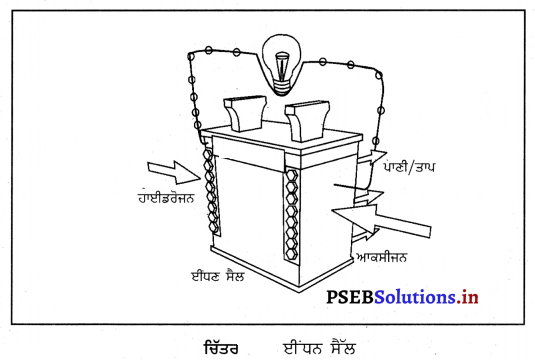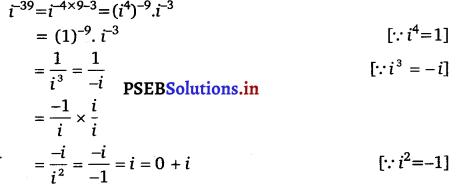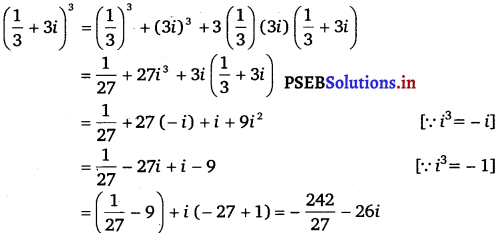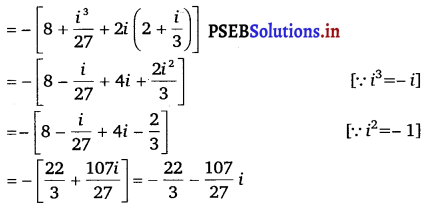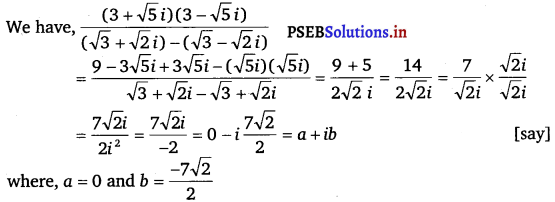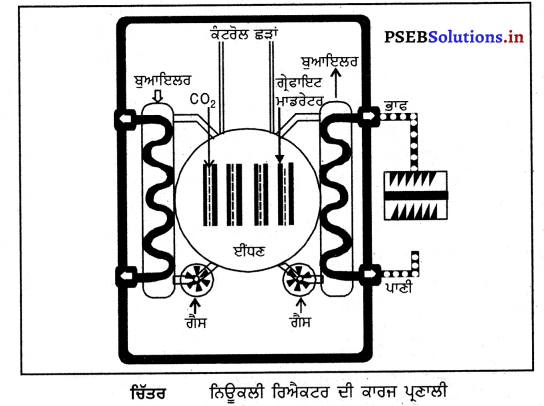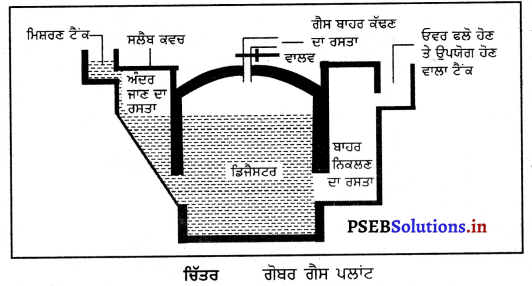Punjab State Board PSEB 11th Class Environmental Education Important Questions Chapter 17 ਨਸ਼ਾ-ਮਾੜੇ ਪ੍ਰਭਾਵ Important Questions, and Answers.
PSEB 11th Class Environmental Education Important Questions Chapter 17 ਨਸ਼ਾ-ਮਾੜੇ ਪ੍ਰਭਾਵ
(ਉ) ਬਹੁਤ ਛੋਟੇ ਉੱਤਰਾਂ ਵਾਲੇ ਪ੍ਰਸ਼ਨ
ਪ੍ਰਸ਼ਨ 1.
WHO ਦਾ ਪੂਰਾ ਨਾਂ ਕੀ ਹੈ ?
ਉੱਤਰ-
WHO ਦਾ ਪੂਰਾ ਨਾਂ ਵਿਸ਼ਵ ਸਿਹਤ ਸੰਗਠਨ (World Health Organisation) ਹੈ ।
ਪ੍ਰਸ਼ਨ 2.
ਦੱਸੋ ਸਹੀ ਹੈ ਜਾਂ ਗਲਤ – ਇੱਕ ਸਿਹਤਮੰਦ ਵਿਅਕਤੀ ਸਮਾਜ ਦੀ ਲਾਭਦਾਇਕ ਸੰਪੱਤੀ ਹੁੰਦਾ ਹੈ ।
ਉੱਤਰ-
ਸਹੀ ਹੈ ।
ਪ੍ਰਸ਼ਨ 3.
ਦੱਸੋ ਸਹੀ ਹੈ ਜਾਂ ਗਲਤ – ਇੱਕ ਬਿਮਾਰ ਵਿਅਕਤੀ ਸਮਾਜ ਵਾਸਤੇ ਬੋਝ ਹੁੰਦਾ ਹੈ ।
ਉੱਤਰ-
ਸਹੀ ਹੈ ।
ਪ੍ਰਸ਼ਨ 4.
ਸਿਹਤਮੰਦ ਵਿਅਕਤੀ ਅਤੇ ਬਿਮਾਰ ਵਿਅਕਤੀ ਵਿੱਚੋਂ ਕੌਣ ਦੇਸ਼ ਅਤੇ ਸਮਾਜ ਦੀ ਵਧੀਆ ਸੇਵਾ ਕਰ ਸਕਦਾ ਹੈ ?
ਉੱਤਰ-
ਇੱਕ ਸਿਹਤਮੰਦ ਵਿਅਕਤੀ ਬਿਮਾਰ ਵਿਅਕਤੀ ਦੇ ਮੁਕਾਬਲੇ ਦੇਸ਼ ਅਤੇ ਸਮਾਜ ਦੀ ਵਧੀਆ ਸੇਵਾ ਕਰ ਸਕਦਾ ਹੈ ।

ਪ੍ਰਸ਼ਨ 5.
ਸਿਹਤਮੰਦ ਅਤੇ ਬਿਮਾਰ ਵਿਅਕਤੀਆਂ ਵਿਚੋਂ ਕੌਣ ਦੇਸ਼ ਅਤੇ ਸਮਾਜ ਦੀ ਉਤਪਾਦਕਤਾ ਪ੍ਰਤੀ ਚੰਗਾ ਯੋਗਦਾਨ ਪਾ ਸਕਦਾ ਹੈ ?
ਉੱਤਰ-
ਇੱਕ ਸਿਹਤਮੰਦ ਵਿਅਕਤੀ ਦੇਸ਼ ਅਤੇ ਸਮਾਜ ਦੀ ਉਤਪਾਦਕਤਾ ਪ੍ਰਤੀ ਚੰਗਾ ਯੋਗਦਾਨ ਪਾ ਸਕਦਾ ਹੈ ।
ਪ੍ਰਸ਼ਨ.6.
ਮਾੜੀ ਸਰੀਰਕ ਸਿਹਤ ਨਾਲ ਸਵੈ-ਮਾਣ ਅਤੇ ਟੀਚਿਆਂ ਨੂੰ ਪੂਰਾ ਕਰਨ ਦੀ ਸਮਰੱਥਾ ਤੇ ਕੀ ਅਸਰ ਪੈਂਦਾ ਹੈ ?
ਉੱਤਰ-
ਮਾੜੀ ਸਰੀਰਕ ਸਿਹਤ ਸਵੈ-ਮਾਣ ਅਤੇ ਟੀਚਿਆਂ ਨੂੰ ਪੂਰਾ ਕਰਨ ਦੀ ਯੋਗਤਾ ਨੂੰ ਘੱਟ ਕਰ ਸਕਦੀ ਹੈ ।
ਪ੍ਰਸ਼ਨ 7.
ਕੀ, ਕਿਸੇ ਕਿਸਮ ਦੀ ਦਵਾਈ ਜਾਂ ਸ਼ਰਾਬ ਦਾ ਮਾਨਸਿਕ ਸਿਹਤ ‘ਤੇ ਅਸਰ ਪੈ ਸਕਦਾ ਹੈ ?
ਉੱਤਰ-
ਜੀ ਹਾਂ, ਕਿਸੇ ਕਿਸਮ ਦੀ ਦਵਾਈ ਜਾਂ ਸ਼ਰਾਬ ਦੀ ਵਰਤੋਂ ਮਾਨਸਿਕ ਸਿਹਤ ’ਤੇ ‘. ਅਸਰ ਪਾ ਸਕਦੀ ਹੈ ।
ਪ੍ਰਸ਼ਨ 8.
ਕੌਣ ਕਿਸੇ ਵਿਅਕਤੀ ਨੂੰ ਸਰੀਰਕ ਅਤੇ ਮਾਨਸਿਕ ਬਿਮਾਰੀ ਵੱਲ ਲੈ ਕੇ ਜਾ ਸਕਦਾ ਹੈ ?
ਉੱਤਰ-
ਨਸ਼ਾ ਜਾਂ ਅਲਕੋਹਲ ਦੀ ਆਦਤ, ਕਿਸੇ ਵਿਅਕਤੀ ਨੂੰ ਸਰੀਰਕ ਅਤੇ ਮਾਨਸਿਕ ਬਿਮਾਰੀ ਵੱਲ ਲੈ ਜਾ ਸਕਦੀ ਹੈ ।
ਪ੍ਰਸ਼ਨ 9.
ਮਾੜੀ ਸਰੀਰਕ ਅਤੇ ਮਾਨਸਿਕ ਸਿਹਤ ਦੇ ਹੇਠਲੇ ਪੱਧਰ ਦੇ ਪ੍ਰਭਾਵ ਕੀ ਹਨ ?
ਉੱਤਰ-
ਹੇਠਲੇ ਪੱਧਰ ‘ਤੇ, ਮਾੜੀ ਸਰੀਰਕ ਅਤੇ ਮਾਨਸਿਕ ਸਿਹਤ ਇੱਕ ਵਿਅਕਤੀ ਲਈ ਵਿਅਕਤੀਗਤ, ਉਸ ਦੇ ਪਰਿਵਾਰ ਅਤੇ ਲਾਗਲੇ ਸਮਾਜਿਕ ਦਾਇਰੇ ਲਈ ਮੁਸ਼ਕਿਲਾਂ ਪੈਦਾ ਕਰਦੀ ਹੈ ।
ਪ੍ਰਸ਼ਨ 10.
ਮਾੜੀ ਸਰੀਰਕ ਅਤੇ ਮਾਨਸਿਕ ਸਿਹਤ ਦੇ ਉੱਚ ਪੱਧਰ ਦੇ ਪ੍ਰਭਾਵ ਕੀ ਹਨ ?
ਉੱਤਰ-
ਉੱਚ ਪੱਧਰ `ਤੇ, ਮਾੜੀ ਸਰੀਰਕ ਅਤੇ ਮਾਨਸਿਕ ਸਿਹਤ ਨਾਲ ਮਨੁੱਖੀ-ਸ਼ਕਤੀ ਅਤੇ ਉਤਪਾਦਕਤਾ ਵਿੱਚ ਕਮੀ ਆਉਂਦੀ ਹੈ ।
ਪ੍ਰਸ਼ਨ 11.
ਨਸ਼ੇ ਦੀ ਬੀਮਾਰੀ ਕਿਸ ਤਰ੍ਹਾਂ ਦੀ ਬੀਮਾਰੀ ਹੈ ?
ਉੱਤਰ-
ਨਸ਼ੇ ਦੀ ਬੀਮਾਰੀ ਇੱਕ ਤਰ੍ਹਾਂ ਦੀ ਮਾਨਸਿਕ ਬਿਮਾਰੀ ਹੈ ।
ਪ੍ਰਸ਼ਨ 12.
ਕੀ ਨਸ਼ੇ ਦੀ ਆਦਤ ਖਾਸ ਕਿਸਮ ਦੇ ਲੋਕਾਂ ਨੂੰ ਪ੍ਰਭਾਵਿਤ ਕਰਦੀ ਹੈ ?
ਉੱਤਰ-
ਨਹੀਂ, ਨਸ਼ੇ ਦੀ ਆਦਤ ਹਰ ਤਰ੍ਹਾਂ ਦੇ ਲੋਕਾਂ ਨੂੰ ਪ੍ਰਭਾਵਿਤ ਕਰਦੀ ਹੈ ।
ਪ੍ਰਸ਼ਨ 13.
17 ਤੋਂ 19 ਸਾਲ ਦੀ ਉਮਰ ਦੇ ਵਿਅਕਤੀਆਂ ਲਈ ਕਿਹੜਾ ਸ਼ਬਦ ਵਰਤਿਆ ਜਾਣਾ ਚਾਹੀਦਾ ਹੈ ?
ਉੱਤਰ-
ਉਹਨਾਂ ਨੂੰ ਨੌਜਵਾਨ ਬਾਲਗ ਜਾਂ ਕਿਸ਼ੋਰ ਕਿਹਾ ਜਾਣਾ ਚਾਹੀਦਾ ਹੈ ।

ਪ੍ਰਸ਼ਨ 14.
ਡਰੱਗਜ਼ ਦੀ ਦੁਰਵਰਤੋਂ ਦਾ ਦੂਜਾ ਨਾਂ ਕੀ ਹੈ ?
ਉੱਤਰ-
ਡਰੱਗਜ਼ ਦੀ ਦੁਰਵਰਤੋਂ ਦਾ ਦੂਜਾ ਨਾਂ ਪਦਾਰਥ ਦੁਰਵਰਤੋਂ ਹੈ ।
ਪ੍ਰਸ਼ਨ 15.
ਡਰੱਗਜ਼ ਦੀ ਦੁਰਵਰਤੋਂ ਕਰਕੇ ਹੋਣ ਵਾਲੀਆਂ ਵਿਵਹਾਰਕ ਤਬਦੀਲੀਆਂ ਕੀ ਹਨ ?
ਉੱਤਰ-
ਡਰੱਗਜ਼ ਦੀ ਦੁਰਵਰਤੋਂ ਕਰਨ ਵਾਲੇ ਆਪਣੇ ਵਿਵਹਾਰ ਵਿਚ ਬਹੁਤ ਸਾਰੇ ਬਦਲਾਅ ਦਿਖਾਉਂਦੇ ਹਨ ।
ਪ੍ਰਸ਼ਨ 16.
ਕੀ ਡਰੱਗਜ਼ ਅਤੇ ਦਵਾਈਆਂ ਦਾ ਇੱਕੋ ਮਤਲਬ ਹੈ ?
ਉੱਤਰ-
ਨਹੀਂ, ਉਨ੍ਹਾਂ ਦੇ ਵੱਖ-ਵੱਖ ਮਤਲਬ ਹੁੰਦੇ ਹਨ ।
ਪ੍ਰਸ਼ਨ 17.
ਡਰੱਗ ਦਾ ਮੁੱਖ ਗੁਣ ਕੀ ਹੁੰਦਾ ਹੈ ?
ਉੱਤਰ-
ਡਰੱਗ ਦਾ ਮੁੱਖ ਗੁਣ ਵਰਤੋਂ ਦੀ ਲੱਤ ਪੈਦਾ ਕਰਨਾ ਹੈ ।
ਪ੍ਰਸ਼ਨ 18.
ਡਰੱਗਜ਼ ਅਤੇ ਦਵਾਈਆਂ ਦੇ ਵਿਚਕਾਰ ਬੁਨਿਆਦੀ ਫਰਕ ਕੀ ਹੈ ?
ਉੱਤਰ-
ਡਰੱਗਜ਼ ਵਿੱਚ ਵਰਤੋਂ ਕਰਨ ਵਾਲੇ ਨੂੰ ਆਦੀ ਬਣਾਉਣ ਦਾ ਗੁਣ ਹੁੰਦਾ ਹੈ ਜਦੋਂ ਕਿ ਦਵਾਈ ਵਿੱਚ ਇਹ ਗੁਣ ਨਹੀਂ ਹੁੰਦਾ ਹੈ ।
ਪ੍ਰਸ਼ਨ 19.
ਇਕ ਆਮ ਆਦਮੀ ਲਈ ਡਰੱਗ ਸ਼ਬਦ ਵਿਚ ਸ਼ਾਮਲ ਪਦਾਰਥਾਂ ਦੇ ਨਾਂ ਦੱਸੋ !
ਉੱਤਰ-
ਸ਼ਬਦੇ ‘ਡਰੱਗ’ ਵਿਚ ਆਦੀ ਬਣਾਉਣ ਵਾਲੀਆਂ ਦਵਾਈਆਂ ਅਤੇ ਨਸ਼ੀਲੇ ਪਦਾਰਥ ਜਿਵੇਂ ਕੋਕੀਨ, ਹੈਰੋਇਨ, ਬਾਉਨ ਸ਼ੁਗਰ ਆਦਿ ਸ਼ਾਮਲ ਹਨ ।
ਪ੍ਰਸ਼ਨ 20.
ਡਰੱਗਜ਼ ਦਾ ਆਦੀ ਜਾਂ ਡਰੱਗ ਐਡਿਕਟ ਕੌਣ ਹੁੰਦਾ ਹੈ ?
ਉੱਤਰ-
ਡਰੱਗਜ਼ ਦੀ ਲਗਾਤਾਰ ਦੁਰਵਰਤੋਂ ਕਰਨ ਵਾਲਾ ਵਿਅਕਤੀ ਡਰੱਗਜ਼ ਦਾ ਆਦੀ ਜਾਂ ਡਰੱਗ ਐਡਿਕਟ ਵਜੋਂ ਜਾਣਿਆ ਜਾਂਦਾ ਹੈ ।
ਪ੍ਰਸ਼ਨ 21.
ਨਸ਼ੇੜੀ ਦੀ ਸਭ ਤੋਂ ਮਹੱਤਵਪੂਰਨ ਵਿਸ਼ੇਸ਼ਤਾ ਕੀ ਹੈ ?
ਉੱਤਰ-
ਨਸ਼ੇ ਦੀ ਆਦਤ ਦੇ ਨਾਲ ਸੰਬੰਧਿਤ ਮਾੜੇ ਪ੍ਰਭਾਵਾਂ ਦੇ ਮੁਕੰਮਲ ਗਿਆਨ ਦੇ ਬਾਅਦ ਵੀ ਨਸ਼ੀਲੀ ਦਵਾਈਆਂ ਦੀ ਦੁਰਵਰਤੋਂ।
ਪ੍ਰਸ਼ਨ 22.
ਡਰੱਗ ਦੀ ਦੁਰਵਰਤੋਂ ਦਾ ਸਭ ਤੋਂ ਵੱਡਾ ਕਾਰਨ ਕੀ ਹੈ ?
ਉੱਤਰ-
ਡਰੱਗ ਦੀ ਦੁਰਵਰਤੋਂ ਦਾ ਸਭ ਤੋਂ ਮਜ਼ਬੂਤ ਕਾਰਨ, ਦੋਸਤਾਂ ਵਲੋਂ ਪਾਇਆ ਜਾਣ ਵਾਲਾ ਦਬਾਅ ਪੀਅਰ ਪ੍ਰੈਸ਼ਰ ਹੈ ।

ਪ੍ਰਸ਼ਨ 23.
ਅਸਫਲਤਾ, ਨਸ਼ੇ ਦੀ ਦੁਰਵਰਤੋਂ ਜਾਂ ਨਸ਼ਾਖੋਰੀ ਤੱਕ ਲੈ ਕੇ ਜਾ ਸਕਦੀ ਹੈ । ਕੀ ਤੁਸੀਂ ਇਸ ਗੱਲ ਨਾਲ ਸਹਿਮਤ ਹੋ ?
ਉੱਤਰ-
ਹਾਂ, ਅਸਫਲਤਾ ਡਰੱਗਜ਼ ਦੀ ਦੁਰਵਰਤੋਂ ਜਾਂ ਨਸ਼ਾਖੋਰੀ ਤੱਕ ਲੈ ਕੇ ਜਾ ਸਕਦੀ ਹੈ ।
ਪ੍ਰਸ਼ਨ 24.
ਕਿਸ ਤਰ੍ਹਾਂ ਦੀ ਪਰਿਵਾਰਕ ਜ਼ਿੰਦਗੀ, ਡਰੱਗਜ਼ ਦੀ ਦੁਰਵਰਤੋਂ ਜਾਂ ਨਸ਼ਾਖੋਰੀ ਤੱਕ ਲੈ ਕੇ ਜਾ ਸਕਦੀ ਹੈ ?
ਉੱਤਰ-
ਖ਼ਰਾਬ ਪਰਿਵਾਰਕ ਜ਼ਿੰਦਗੀ, ਡਰੱਗਜ਼ ਦੀ ਦੁਰਵਰਤੋਂ ਜਾਂ ਨਸ਼ਾਖੋਰੀ ਤੱਕ ਲੈ ਕੇ ਜਾ ਸਕਦੀ ਹੈ ।
ਪ੍ਰਸ਼ਨ 25.
ਕੀ ਡਿਪੈਸ਼ਨ ਡਰੱਗਜ਼ ਦੀ ਦੁਰਵਰਤੋਂ ਲਈ ਜ਼ਿੰਮੇਵਾਰ ਹੋ ਸਕਦਾ ਹੈ ?
ਉੱਤਰ-
ਹਾਂ, ਡਿਪ੍ਰੈਸ਼ਨ ਡਰੱਗਜ਼ ਦੀ ਦੁਰਵਰਤੋਂ ਲਈ ਜ਼ਿੰਮੇਵਾਰ ਹੋ ਸਕਦਾ ਹੈ ।
ਪ੍ਰਸ਼ਨ 26.
ਕੀ ਬੇਲੋੜੀ ਚਿੰਤਾ ਡਰੱਗਜ਼ ਦੀ ਦੁਰਵਰਤੋਂ ਲਈ ਜ਼ਿੰਮੇਵਾਰ ਹੋ ਸਕਦੀ ਹੈ ?
ਉੱਤਰ-
ਹਾਂ, ਬੇਲੋੜੀ ਚਿੰਤਾ ਡਰੱਗ ਦੁਰਵਰਤੋਂ ਲਈ ਜ਼ਿੰਮੇਵਾਰ ਹੋ ਸਕਦੀ ਹੈ ।
ਪ੍ਰਸ਼ਨ 27.
ਕੀ ਬਿਹਤਰ ਕਾਰਗੁਜ਼ਾਰੀ ਲਈ ਦਬਾਅ, ਡਰੱਗਜ਼ ਦੀ ਦੁਰਵਰਤੋਂ ਲਈ ਜ਼ਿੰਮੇਵਾਰ ਹੋ ਸਕਦਾ ਹੈ?
ਉੱਤਰ-
ਹਾਂ, ਬਿਹਤਰ ਕਾਰਗੁਜ਼ਾਰੀ ਲਈ ਦਬਾਅ, ਡਰੱਗਜ਼ ਦੀ ਦੁਰਵਰਤੋਂ ਲਈ ਜ਼ਿੰਮੇਵਾਰ ਹੋ ਸਕਦਾ ਹੈ ।
ਪ੍ਰਸ਼ਨ 28.
ਕੀ ਤੁਸੀਂ ਸਹਿਮਤ ਹੋ ਕਿ ਡਰੱਗਜ਼ ਦੀ ਦੁਰਵਰਤੋਂ ਕਰਨ ਵਾਲੇ ਦਾ ਸੁਭਾਅ ਗੁੱਸੇ ਵਾਲਾ ਹੁੰਦਾ ਹੈ ?
ਉੱਤਰ-
ਹਾਂ, ਡਰੱਗਜ਼ ਦੀ ਦੁਰਵਰਤੋਂ ਕਰਨ ਵਾਲੇ ਦਾ ਸੁਭਾਅ ਗੁੱਸੇ ਵਾਲਾ ਹੁੰਦਾ ਹੈ ।
ਪ੍ਰਸ਼ਨ 29.
ਗਰੁੱਪ ਲੜਾਈਆਂ ਅਤੇ ਗੈਂਗ-ਵਾਰਾਂ ਵਿਚ ਵਾਧੇ ਦਾ ਮੁੱਖ ਕਾਰਨ ਕੀ ਹੈ ?
ਉੱਤਰ-
ਗਰੁੱਪ ਲੜਾਈਆਂ ਅਤੇ ਗੈਂਗ-ਵਾਰਾਂ ਵਿਚ ਵਾਧੇ ਦਾ ਮੁੱਖ ਕਾਰਨ ਨਸ਼ੇ ਦੀ ਆਦਤ ਹੈ।
ਪ੍ਰਸ਼ਨ 30.
ਕੀ ਇਹ ਸੱਚ ਹੈ ਕਿ ਡਰੱਗਜ਼ ਦੀ ਦੁਰਵਰਤੋਂ ਕਰਨ ਵਾਲੇ ਆਪਣੀਆਂ ਜ਼ਿੰਮੇਵਾਰੀਆਂ ਨੂੰ ਨਜ਼ਰਅੰਦਾਜ਼ ਕਰਦੇ ਹਨ ?
ਉੱਤਰ-
ਹਾਂ, ਇਹ ਸੱਚ ਹੈ ਕਿ ਡਰੱਗਜ਼ ਦੀ ਦੁਰਵਰਤੋਂ ਕਰਨ ਵਾਲੇ, ਘਰ ਅਤੇ ਕੰਮ ਵਾਲੀ ਥਾਂ ‘ਤੇ ਆਪਣੀਆਂ ਜ਼ਿੰਮੇਵਾਰੀਆਂ ਨੂੰ ਨਜ਼ਰਅੰਦਾਜ਼ ਕਰਦੇ ਹਨ ।
ਪ੍ਰਸ਼ਨ 31.
ਡਰੱਗਜ਼ ਦੀ ਦੁਰਵਰਤੋਂ ਕਰਨ ਵਾਲੇ ਦੀ ਰੁਟੀਨ ਵਿਚ ਹੋਣ ਵਾਲੀਆਂ ਕੁੱਝ ਤਬਦੀਲੀਆਂ ਬਾਰੇ ਦੱਸੋ ।
ਉੱਤਰ-
ਡਰੱਗਜ਼ ਦੀ ਦੁਰਵਰਤੋਂ ਕਰਨ ਵਾਲੇ ਦੀ ਰੁਟੀਨ ਵਿਚ ਹੋਣ ਵਾਲੀਆਂ ਕੁੱਝ ਤਬਦੀਲੀਆਂ ਭੁੱਖ ਵਿੱਚ ਬਦਲਾਅ, ਸਰੀਰ ਦੇ ਭਾਰ ਵਿੱਚ ਬਦਲਾਅ ਅਤੇ ਨੀਂਦ ਦੇ ਤਰੀਕਿਆਂ ਵਿੱਚ ਬਦਲਾਅ ਆਮ ਹਨ ।

ਪ੍ਰਸ਼ਨ 32.
ਅਸੀਂ ਨਸ਼ੀਲੇ ਪਦਾਰਥਾਂ ਅਤੇ ਗੈਰਕਾਨੂੰਨੀ ਤਸਕਰੀ ਵਿਰੁੱਧ ਅੰਤਰਰਾਸ਼ਟਰੀ ਦਿਵਸ ਕਦੋਂ ਮਨਾਉਂਦੇ ਹਾਂ ?
ਉੱਤਰ-
ਅਸੀਂ 26 ਜੂਨ ਨੂੰ ਨਸ਼ੀਲੇ ਪਦਾਰਥਾਂ ਅਤੇ ਗੈਰਕਾਨੂੰਨੀ ਤਸਕਰੀ ਦੇ ਖਿਲਾਫ ਅੰਤਰਰਾਸ਼ਟਰੀ ਦਿਵਸ ਮਨਾਉਂਦੇ ਹਾਂ ।
ਪ੍ਰਸ਼ਨ 33.
ਵਾਸ਼ਪਸ਼ੀਲ ਤਰਲ ਜਾਂ ਸੌਲਵੈਂਟਾਂ ਦਾ ਦੂਜਾ ਨਾਮ ਕੀ ਹੈ ?
ਉੱਤਰ-
ਇੰਹਾਲੈਂਟਸ (Inhalants) ।
ਪ੍ਰਸ਼ਨ 34.
ਉਪਯੋਗਕਰਤਾ ਦੀ ਧਾਰਨਾ ਬਦਲਣ ਵਾਲੇ ਪਦਾਰਥਾਂ ਲਈ ਵਰਤਿਆ ਜਾਣ ਵਾਲਾ ਸ਼ਬਦ ਕੀ ਹੈ ?
ਉੱਤਰ-
ਪੈਸਿਨੋਜੈਨਸ (ਭਰਮ ਪੈਦਾ ਕਰਨ ਵਾਲੇ ਪਦਾਰਥ) (Hallucinogens) ।
ਪ੍ਰਸ਼ਨ 35.
ਉਪਯੋਗਕਰਤਾ ਦੇ ਬਲੱਡ ਪ੍ਰੈਸ਼ਰ ਅਤੇ ਊਰਜਾ ਦੇ ਪੱਧਰ ਨੂੰ ਵਧਾਉਣ ਵਾਲੇ ਪਦਾਰਥਾਂ ਲਈ ਵਰਤਿਆ ਜਾਣ ਵਾਲਾ ਸ਼ਬਦ ਕੀ ਹੈ ?
ਉੱਤਰ-
ਉਤੇਜਕ ਜਾਂ ਸਟੀਮੂਲੈਂਟਸ (Stimulants) ।
ਪ੍ਰਸ਼ਨ 36.
ਅਲਕੋਹਲ ਕਿਸ ਕਿਸਮ ਦੀ ਡਰੱਗ ਹੈ ?
ਉੱਤਰ-
ਇਹ ਇੱਕ ਅਵਸਾਦਕ ਡਿਪ੍ਰੈਸੇਂਟ) ਹੈ ।
ਪ੍ਰਸ਼ਨ 37.
ਸਟੀਮੂਲੈਂਟਸ ਲਈ ਹੋਰ ਨਾਮ ਕੀ ਹੈ ?
ਉੱਤਰ-
ਇਹ ਅਪਰਜ਼ (Uppers) ਦੇ ਤੌਰ ਤੇ ਜਾਣੇ ਜਾਂਦੇ ਹਨ ।
ਪ੍ਰਸ਼ਨ 38.
ਡਿਪੈਸੇਂਟ ਲਈ ਦੂਜਾ ਨਾਮ ਕੀ ਹੈ ?
ਉੱਤਰ-
ਇਹ ਡਾਊਨਰਜ਼ (Downers) ਦੇ ਤੌਰ ਤੇ ਜਾਣੇ ਜਾਂਦੇ ਹਨ ।
ਪ੍ਰਸ਼ਨ 39.
ਉਤਸ਼ਾਹ ਜਾਂ ਉਤੇਜਨਾ ਦੇਣ ਵਾਲੀ ਦਵਾਈ ਦੀ ਇਕ ਉਦਾਹਰਣ ਦਿਓ ।
ਉੱਤਰ-
ਕੋਕੇਨ (Cocaine)
ਪ੍ਰਸ਼ਨ 40.
ਨਿਕੋਟੀਨ ਦਾ ਮੁੱਖ ਸਰੋਤ ਕੀ ਹੈ ?
ਉੱਤਰ-
ਤੰਬਾਕੂ ਦਾ ਪੌਦਾ ।
ਪ੍ਰਸ਼ਨ 41.
ਕਿਸ ਨਸ਼ੇ ਦੀ ਸਭ ਤੋਂ ਵੱਧ ਦੁਰਵਰਤੋਂ ਹੁੰਦੀ ਹੈ ?
ਉੱਤਰ-
ਅਲਕੋਹਲ (ਸ਼ਰਾਬ) ਦੀ ।
ਪ੍ਰਸ਼ਨ 42.
ਦੂਸਰੇ ਨੰਬਰ ਤੇ ਸਭ ਤੋਂ ਵੱਧ ਦੁਰਵਰਤੋਂ ਕੀਤਾ ਜਾਣ ਵਾਲਾ ਵਾਲਾ ਪਦਾਰਥ ਕਿਹੜਾ ਹੈ ?
ਉੱਤਰ-
ਨਿਕੋਟੀਨ।
ਪ੍ਰਸ਼ਨ 43.
ਡਰੱਗ ਦੁਰਵਰਤੋਂ ਵਿਰੁੱਧ ਸਭ ਤੋਂ ਵਧੀਆ ਹਥਿਆਰ ਕੀ ਹੈ ?
ਉੱਤਰ-
ਮਜ਼ਬੂਤ ਸ਼ਕਤੀ ਡਰੱਗ ਦੁਰਵਰਤੋਂ ਵਿਰੁੱਧ ਸਭ ਤੋਂ ਵੱਧ ਮਜ਼ਬੂਤ ਹਥਿਆਰ ਹੈ ।
ਪ੍ਰਸ਼ਨ 44.
ਸੈਡੇਟਿਵ ਅਤੇ ਟਾਂਕਿਊਲਾਈਜ਼ਰ ਦੇ ਆਮ ਪ੍ਰਭਾਵ ਕੀ ਹਨ ?
ਉੱਤਰ-
ਉਹ ਬੇਲੋੜੀ ਚਿੰਤਾ ਅਤੇ ਮਨ ਦੀ ਬਹੁਤੀ ਸਰਗਰਮੀ ਨੂੰ ਘਟਾਉਂਦੇ ਹਨ ।
ਪ੍ਰਸ਼ਨ 45.
ਵਿਅਕਤੀ ਦੇ ਮਨ ਨੂੰ ਬਦਲਣ ਵਾਲੀ ਡਰੱਗ ਨੂੰ ਕੀ ਕਿਹਾ ਜਾਂਦਾ ਹੈ ?
ਉੱਤਰ-
ਸਾਈਕੋ-ਐਕਟਿਵ ਪਦਾਰਥ (Psycho-active substances) ।
ਪ੍ਰਸ਼ਨ 46.
ਐਂਟੀ-ਡਿਪੈਲੇਂਟਜ਼ ਕੀ ਹਨ ?
ਉੱਤਰ-
ਬੇਲੋੜੀ ਚਿੰਤਾ, ਖਾਣ-ਪੀਣ ਸੰਬੰਧੀ ਵਿਕਾਰਾਂ, ਜੋੜਾਂ ਦੀਆਂ ਪੁਰਾਣੀਆਂ ਦਰਦਾਂ, ਦਿਮਾਗੀ ਵਿਗਾੜਾਂ ਦੇ ਇਲਾਜ ਲਈ ਵਰਤੀਆਂ ਜਾਣ ਵਾਲੀਆਂ ਦਵਾਈਆਂ ਨੂੰ ਐਂਟੀ-ਡੀਪ੍ਰੈਜ਼ੈਂਟਸ ਕਿਹਾ ਜਾਂਦਾ ਹੈ ।

ਪ੍ਰਸ਼ਨ 47.
ਡਰੱਗਜ਼ ਦੀ ਦੁਰਵਰਤੋਂ ਦੀ ਚੇਤਾਵਨੀ ਦੇ ਸੰਕੇਤ ਲਿਖੋ ।
ਉੱਤਰ-
ਡਰੱਗਜ਼ ਦੀ ਦੁਰਵਰਤੋਂ ਦੇ ਕੁਝ ਚੇਤਾਵਨੀ ਸੰਕੇਤ ਹਨ :
- ਲਾਲ ਸੁਰਖ ਅੱਖਾਂ, ਫੈਲੀਆਂ ਹੋਈਆਂ ਪੁਤਲੀਆਂ,
- ਭੁੱਖ ਜਾਂ ਨੀਂਦ ਦੇ ਪੈਟਰਨਾਂ ਵਿਚ ਤਬਦੀਲੀਆਂ,
- ਅਚਾਨਕ ਭਾਰ ਘਟਣਾ ॥
ਪ੍ਰਸ਼ਨ 48.
ਕੀ ਨਸ਼ਾਖੋਰੀ ਇੱਕ ਰੋਗ ਹੈ ਜਾਂ ਆਦਤ ?
ਉੱਤਰ-
ਨਸ਼ਾਖੋਰੀ ਇਕ ਰੋਗ ਹੈ ।
ਪ੍ਰਸ਼ਨ 49.
ਕੀ ਸਾਲ 18 ਦੀ ਉਮਰ ਤੋਂ ਘੱਟ ਕਿਸੇ ਵਿਅਕਤੀ ਨੂੰ ਡਰੱਗ ਵੇਚਣਾ ਕਾਨੂੰਨੀ ਹੈ ?
ਉੱਤਰ-
ਨਹੀਂ, ਇਹ ਗੈਰ-ਕਾਨੂੰਨੀ ਹੈ ।
ਪ੍ਰਸ਼ਨ 50.
ਕੀ ਅਸੀਂ ਖੁੱਲ੍ਹੇ ਵਿੱਚ ਸ਼ਰਾਬ ਪੀ ਸਕਦੇ ਹਾਂ ?
ਉੱਤਰ-
ਨਹੀਂ, ਅਸੀਂ ਖੁੱਲ੍ਹੇ ਵਿੱਚ ਸ਼ਰਾਬ ਨਹੀਂ ਪੀ ਸਕਦੇ ।
(ਅ) ਛੋਟੇ ਉੱਤਰਾਂ ਵਾਲੇ ਪ੍ਰਸ਼ਨ (Type I)
ਪ੍ਰਸ਼ਨ 1.
ਬਿਮਾਰੀ ਤੋਂ ਤੁਹਾਡਾ ਕੀ ਮਤਲਬ ਹੈ ?
ਉੱਤਰ-
ਬਿਮਾਰੀ ਇੱਕ ਅਜਿਹੀ ਸਥਿਤੀ ਹੈ ਜਿਸ ਵਿੱਚ ਜਾਂ ਤਾਂ ਸਰੀਰ ਜਾਂ ਮਨ ਜਾਂ ਦੋਵੇਂ ਠੀਕ ਢੰਗ ਨਾਲ ਕੰਮ ਨਹੀਂ ਕਰਦੇ ।
ਪ੍ਰਸ਼ਨ 2.
ਇਲਾਜ ਤੋਂ ਤੁਹਾਡਾ ਕੀ ਮਤਲਬ ਹੈ ?
ਉੱਤਰ-
ਕਿਸੇ ਰੋਗ ਜਾਂ ਵਿਕਾਰ ਨੂੰ ਠੀਕ ਕਰਨ ਦੀ ਕਿਰਿਆ ਨੂੰ ਇਲਾਜ ਕਹਿੰਦੇ ਹਨ । ਇਸ ਵਿਚ ਸਰੀਰਿਕ ਕਸਰਤ ਜਾਂ ਕਿਸੇ ਅਜਿਹੇ ਪਦਾਰਥ ਦਾ ਲੈਣਾ ਜਾਂ ਖਾਣਾ ਹੋ ਸਕਦਾ ਹੈ ਜਿਸ ਵਿਚ ਰੋਗ ਜਾਂ ਵਿਕਾਰ ਦੇ ਚਿੰਨ੍ਹਾਂ ਜਾਂ ਲੱਛਣਾਂ ਨੂੰ ਰੋਕਣ ਦੀ ਸਮਰੱਥਾ ਹੁੰਦੀ ਹੈ ।
ਪ੍ਰਸ਼ਨ 3.
ਡਰੱਗ (Drug) ਕੀ ਹੈ ?
ਉੱਤਰ-
ਆਮ ਆਦਮੀ ਦੇ ਅਨੁਸਾਰ, ਡਰੱਗ ਨੂੰ ਮਨੁੱਖੀ ਸਰੀਰ ਵਿੱਚ ਸਰੀਰਕ, ਜੈਵਿਕ ਅਤੇ/ਜਾਂ ਮਨੋਵਿਗਿਆਨਿਕ ਪ੍ਰਭਾਵ ਪੈਦਾ ਕਰਨ ਦੇ ਸਮਰੱਥ ਕਿਸੇ ਵੀ ਪਦਾਰਥ ਜਾਂ ਉਤਪਾਦ ਦੇ ਤੌਰ ‘ਤੇ ਪਰਿਭਾਸ਼ਿਤ ਕੀਤਾ ਜਾ ਸਕਦਾ ਹੈ ਅਤੇ ਮਨੁੱਖੀ ਸਰੀਰ ਦੀਆਂ ਆਮ ਪ੍ਰਕਿਰਿਆਵਾਂ ਜਾਂ ਕਾਰਜਾਂ ਨੂੰ ਬਦਲਣ ਦੇ ਸਮਰੱਥ ਹੈ ।ਉਦਾਹਰਣਾਂ ਵਿੱਚ ਚਾਹ, ਕੌਫੀ, ਅਲਕੋਹਲ, ਤੰਬਾਕੂ, ਦਵਾਈਆਂ ਆਦਿ ਸ਼ਾਮਲ ਹਨ । ਡਰੱਗਜ਼ ਆਦਤ ਬਣਾਉਣ ਦੇ ਇੱਕ ਅਸਾਧਾਰਨ ਗੁਣ ਨਾਲ ਜੁੜੀਆਂ ਹੋਈਆਂ ਹੁੰਦੀਆਂ ਹਨ ।
ਪ੍ਰਸ਼ਨ 4.
ਦਵਾਈਆਂ (medicines) ਕੀ ਹਨ ?
ਉੱਤਰ-
ਰਸਾਇਣਿਕ ਯੌਗਿਕ ਜਿਹੜੇ ਅਸਲ ਵਿਚ ਬਿਮਾਰੀ ’ਤੇ ਕਾਬੂ ਪਾਉਣ ਜਾਂ ਬਿਮਾਰੀ ਨਾਲ ਲੜਨ ਦੀ ਯੋਗਤਾ ਰੱਖਦੇ ਹਨ ਤੇ ਇਕ ਵਾਰ ਲੈਣ ਨਾਲ ਕਿਸੇ ਤਰ੍ਹਾਂ ਦੀ ਆਦਤ ਨਹੀਂ ਬਣਾਉਂਦੇ ਜਾਂ ਲਤ ਨਹੀਂ ਲੱਗਦੀ ਅਤੇ ਇਕ ਵਾਰ ਲੈਣ ਤੋਂ ਬਾਅਦ ਉਸ ਦੀ ਭੂਮਿਕਾ ਸਮਾਪਤ ਹੋ ਜਾਂਦੀ ਹੈ, ਉਨ੍ਹਾਂ ਨੂੰ ਦਵਾਈਆਂ ਕਹਿੰਦੇ ਹਨ ।
ਪ੍ਰਸ਼ਨ 5.
ਡਰੱਗਜ਼ ਦੀ ਦੁਰਵਰਤੋਂ (Drugs Abuse) ਕੀ ਹੈ ?
ਉੱਤਰ-
ਗੈਰ-ਕਾਨੂੰਨੀ ਡਰੱਗਜ਼ (Drugs) ਜਾਂ ਰਸਾਇਣਿਕ ਯੌਗਿਕਾਂ ਦੀ ਆਦਤ ਵਜੋਂ ਜਾਂ ਨਸ਼ੇ ਦੇ ਤੌਰ ਤੇ ਵਰਤੋਂ ਨੂੰ ਡਰੱਗਜ਼ ਦੀ ਦੁਰਵਰਤੋਂ ਕਹਿੰਦੇ ਹਨ ।
ਪ੍ਰਸ਼ਨ 6.
ਪਦਾਰਥ ਦੁਰਵਰਤੋਂ ਵਿਕਾਰ (Substance use disorder) ਕੀ ਹੈ ?
ਉੱਤਰ-
ਪਦਾਰਥ ਦੁਰਵਰਤੋਂ ਵਿਕਾਰ (Substance use disorder)-ਅਜਿਹੀ ਅਵਸਥਾ ਜਿਸ ਵਿਚ ਪਦਾਰਥਾਂ ਦੀ ਵਰਤੋਂ ਕਰਕੇ ਕਲੀਨਿਕਲ ਅਤੇ ਕਾਰਜਕਾਰੀ ਕੰਮਾਂ ਵਿਚ ਮਹੱਤਵਪੂਰਨ ਨੁਕਸਾਨ ਜਾਂ ਤਕਲੀਫ਼ ਹੁੰਦੀ ਹੈ ।
ਪ੍ਰਸ਼ਨ 7.
ਕੀ ਸਿਡੇਟਿਵਟਰੈਂਕੁਲਾਈਜ਼ਰ (Sedative/tranquillizers) ਵਿੱਚ ਕੋਈ ਅੰਤਰ ਹੈ ? ਸਪੱਸ਼ਟ ਕਰੋ ।
ਉੱਤਰ-
ਸਿਡੇਟਿਵ/ਟਰੈਂਕੁਲਾਈਜ਼ਰ (Sedative/tranquillizers) ਵਿੱਚ ਕੋਈ ਅੰਤਰ ਨਹੀਂ ਹੈ । ਦੋਵੇਂ ਸ਼ਬਦ ਸਮਾਨਾਰਥਕ ਅਤੇ ਸ਼ਾਂਤ ਕਰਨ ਵਾਲੇ ਪਦਾਰਥ ਹਨ ।
ਸਿਡੇਟਿਵਟਰੈਂਕੁਲਾਈਜ਼ਰ (Sedative/tranquillizers)-ਇਹ ਅਜਿਹੇ ਰਸਾਇਣਿਕ ਪਦਾਰਥ ਹਨ ਜੋ ਸ਼ਾਂਤ ਕਰਨ ਅਤੇ ਨੀਂਦ ਲਿਆਉਣ ਦੇ ਲਈ, ਚਿੜਚਿੜਾਪਣ ਜਾਂ ਉਤੇਜਨਾ ਨੂੰ ਘੱਟ ਕਰਨ ਲਈ ਵਰਤੇ ਜਾਂਦੇ ਹਨ । ਇਹਨਾਂ ਦੀ ਵੱਡੀ ਮਾਤਰਾ ਵਿਚ ਵਰਤੋਂ ਕਰਨ ਨਾਲ ਥੋਥਲਾਪਣ, ਟੇਢੀ-ਮੇਢੀ ਚਾਲ, ਫ਼ੈਸਲਾ ਲੈਣ ਦੀ ਸਮਰੱਥਾ ਵਿੱਚ ਕਮੀ ਅਤੇ ਹੱਥਾਂ-ਪੈਰਾਂ ਨੂੰ ਜਲਦੀ ਹਿਲਾਉਣ ਵਿਚ ਮੁਸ਼ਕਿਲ ਆਉਂਦੀ ਹੈ ।

ਪ੍ਰਸ਼ਨ 8.
ਅਵਸਾਦ ਰੋਧੀ (Anti-depressants) ਕੀ ਹਨ ?
ਉੱਤਰ-
ਅਵਸਾਦ ਰੋਧੀ ਜਾਂ ਐਂਟੀ-ਡਿਪੈਸੇਂਟਸ (Anti-depressants)-ਇਹਨਾਂ ਡਰੱਗਜ਼ ਦੀ ਮੁੱਖ ਵਰਤੋਂ ਅਵਸਾਦ ਦੇ ਸ਼ਿਕਾਰ ਵਿਅਕਤੀ ਅਤੇ ਹੋਰ ਹਾਲਤਾਂ ; ਜਿਵੇਂ, ਬੇਚੈਨੀ, ਲੰਬੇ ਸਮੇਂ ਤੋਂ ਚਲ ਰਹੀ ਦਰਦ, ਓਬਸੈਸੀਵ ਕਮਪਲਸਰੀ ਡਿਸਆਰਡਰ ਅਤੇ ਕੁਝ ਸਥਿਤੀਆਂ ਵਿੱਚ ਮਾਈਗ੍ਰੇਨ ਤੋਂ ਰਾਹਤ ਲਈ ਵੀ ਇਹਨਾਂ ਡਰੱਗਜ਼ ਦੀ ਵਰਤੋਂ ਕੀਤੀ ਜਾਂਦੀ ਹੈ । ਇਹਨਾਂ ਵਿਚ ਨੀਂਦ ਲਿਆਉਣ ਦਾ ਗੁਣ ਹੁੰਦਾ ਹੈ ।
ਪ੍ਰਸ਼ਨ 9.
ਨਸ਼ੇ ਦੀ ਲਤ ਲੱਗਣੀ/ਨਸ਼ੇ ਦਾ ਆਦੀ ਹੋਣਾ (Drug-addiction) ਨੂੰ ਪਰਿਭਾਸ਼ਤ ਕਰੋ ।
ਉੱਤਰ-
ਨਸ਼ੇ ਦੀ ਲਤ ਲੱਗਣੀ/ਨਸ਼ੇ ਦਾ ਆਦੀ ਹੋਣਾ (Drug-addiction)-ਵਿਸ਼ਵ ਸਿਹਤ ਸੰਗਠਨ (World Health Organisation, WHO) ਅਨੁਸਾਰ, “ਡਰੱਗ/ਪਦਾਰਥ (ਕੁਦਰਤੀ ਜਾਂ ਸੰਸ਼ਲਿਸ਼ਟ) ਦੇ ਵਾਰ-ਵਾਰ ਸੇਵਨ ਕਰਨ ‘ਤੇ ਕਿਸੇ ਵਿਅਕਤੀ ਵਿਚ ਕਦੇਂ-ਕਦੇ ਜਾਂ ਲੰਬੇ ਸਮੇਂ ਤੱਕ ਬੇਹੋਸ਼ੀ ਜਾਂ ਮਸਤੀ ਵਿਚ ਰਹਿਣ : ਜਿਸ ਨਾਲ ਵਿਅਕਤੀ ਅਤੇ ਸਮਾਜ ਦੋਵਾਂ ਦੀ ਹਾਨੀ ਹੋਵੇ, ਨੂੰ ਨਸ਼ੇ ਦੀ ਲਤ ਲੱਗਣੀ ਜਾਂ ਨਸ਼ੇ ਦਾ ਆਦੀ ਹੋਣਾ ਕਹਿੰਦੇ ਹਨ ।
ਪ੍ਰਸ਼ਨ 10.
ਨਸ਼ਾ ਜਾਂ ਸ਼ਰਾਬ ਦੀ ਲਤ ਕਿੰਨੀ ਆਮ ਗੱਲ ਹੈ ?
ਉੱਤਰ-
ਲਗਪਗ 10% ਜਨਸੰਖਿਆ ਨੂੰ ਨਸ਼ਿਆਂ ਜਾਂ ਸ਼ਰਾਬ ਦੀ ਲਤ ਲੱਗੀ ਹੋਈ ਹੈ । ਇਹ ਲਤ, ਸ਼ੂਗਰ ਦੀ ਬਿਮਾਰੀ ਤੋਂ ਵੀ ਵਧ ਹੈ, ਸ਼ੂਗਰ ਦੀ ਬਿਮਾਰੀ ਲਗਪਗ 7% ਜਨਸੰਖਿਆ ਨੂੰ ਹੈ |
ਪ੍ਰਸ਼ਨ 11.
ਨਸ਼ੇ ਨੂੰ ਛੱਡਣਾ ਬਹੁਤ ਔਖਾ ਜਾਂ ਮੁਸ਼ਕਿਲ ਕਿਉਂ ਹੈ ?
ਉੱਤਰ-
ਨਸ਼ੇ ਦੀ ਆਦਤ ਤੋਂ ਛੁਟਕਾਰਾ ਪਾਉਣ ਲਈ ਜਾਂ ਇਸ ਦੇ ਇਲਾਜ ਵਿਚ ਸਮਾਂ ਲਗਦਾ ਹੈ । ਸਭ ਤੋਂ ਪਹਿਲਾਂ ਤਾਂ ਆਪਣੇ ਦਿਮਾਗ਼ ਵਿਚ ਇਹ ਗੱਲ ਆਉਣੀ ਚਾਹੀਦੀ ਹੈ ਕਿ ‘ਮੈਂ ਅੱਗੇ ਤੋਂ ਨਸ਼ਾ ਨਹੀਂ ਕਰਨਾਂ’ । ਇਹ ਇਕ ਬਹੁਤ ਵੱਡੀ ਗੱਲ ਹੈ ਤੇ ਨਸ਼ਾ ਛੱਡਣ ਲਈ ਪਹਿਲਾ ਕਦਮ ਹੈ । ਨਸ਼ੇ ਦੀ ਲਤ ਲੱਗੀ ਹੋਵੇ ਤਾਂ ਡਰ ਲੱਗਾ ਰਹਿੰਦਾ ਹੈ ਕਿ ਜੇ ਮੈਂ ਨਸ਼ਾ ਨਾ ਕੀਤਾ ਤਾਂ ਪਤਾ ਨਹੀਂ ਕੀ ਹੋਵੇਗਾ । ਲੋਕ ਆਮ ਕਰਕੇ ਉਦੋਂ ਤੱਕ ਨਸ਼ਾ ਨਹੀਂ ਛੱਡਦੇ ਜਦੋਂ ਤੱਕ ਉਹਨਾਂ ਨਾਲ ਜ਼ਬਰਦਸਤੀ ਨਾ ਕੀਤੀ ਜਾਵੇ ਕਿਉਂਕਿ ਨਸ਼ਾ ਛੱਡਣਾ ਬਹੁਤ ਮੁਸ਼ਕਿਲ ਹੈ ।
ਜਦੋਂ ਤੁਸੀਂ ਨਸ਼ਾ ਛੱਡਦੇ ਹੋ ਤਾਂ ਤੁਹਾਡਾ ਦਿਮਾਗ ਅਤੇ ਸਰੀਰ ਅਸਤ-ਵਿਅਸਤ ਹੋ ਜਾਂਦੇ ਹਨ । ਤੁਸੀਂ ਖੁਦ ਨੂੰ ਬਹੁਤ ਕਮਜ਼ੋਰ ਤੇ ਬਿਮਾਰ ਮਹਿਸੂਸ ਕਰਦੇ ਹੋ ਤੇ ਮਹਿਸੂਸ ਕਰਦੇ ਹੋ ਕਿ ਨਸ਼ਾ ਲੈਣ ਦੀ ਬਹੁਤ ਜ਼ਿਆਦਾ ਲੋੜ ਹੈ । ਜਦੋਂ ਇੰਨੀ ਜ਼ਬਰਦਸਤ ਤਲਬ ਲਗਦੀ ਹੈ ਤਾਂ ਨਸ਼ੇ ਨੂੰ ਮਨਾ ਕਰਨਾ ਮੁਸ਼ਕਿਲ ਹੋ ਜਾਂਦਾ ਹੈ ।
ਪ੍ਰਸ਼ਨ 12.
ਵਿਸ਼ਵ ਸਿਹਤ ਸੰਗਠਨ (World Health Organisation, WHO) ਨੇ ਡਰੱਗ ਦੇ ਆਦੀ ਹੋਣ ਜਾਂ ਡਰੱਗ ਐਡਿਕਸ਼ਨ ਦੀ ਕੀ ਪਰਿਭਾਸ਼ਾ ਦਿੱਤੀ ਹੈ ?
ਉੱਤਰ-
ਡਰੱਗ ਦੇ ਆਦੀ ਹੋਣ ਜਾਂ ਡਰੱਗ ਐਡਿਕਸ਼ਨ (Drug addiction)-ਇਸ ਸੰਗਠਨ ਅਨੁਸਾਰ, “ਡਰੱਗ/ਪਦਾਰਥ (ਕੁਦਰਤੀ ਜਾਂ ਸੰਸ਼ਲਿਸ਼ਟ) ਦੇ ਵਾਰ-ਵਾਰ ਸੇਵਨ ਕਰਨ ‘ਤੇ ਕਿਸੇ ਵਿਅਕਤੀ ਵਿਚ ਕਦੇ-ਕਦੇ ਜਾਂ ਲੰਬੇ ਸਮੇਂ ਤੱਕ ਬੇਹੋਸ਼ੀ ਜਾਂ ਮਸਤੀ ਵਿਚ ਰਹਿਣ, ਜਿਸ ਨਾਲ ਵਿਅਕਤੀ ਅਤੇ ਸਮਾਜ ਦੋਵਾਂ ਦੀ ਹਾਨੀ ਹੋਵੇ, ਨੂੰ ਨਸ਼ੇ ਦੀ ਲਤ ਲੱਗਣੀ ਜਾਂ ਨਸ਼ੇ ਦਾ ਆਦੀ ਹੋਣਾ ਕਹਿੰਦੇ ਹਨ ।
ਪ੍ਰਸ਼ਨ 13.
ਕੁਝ ਅਫੀਮ ਡੈਰੀਵੇਟਿਵਜ਼ ਦੀ ਇੱਕ ਸੂਚੀ ਬਣਾਓ ।
ਉੱਤਰ-
ਅਫ਼ੀਮ ਤੋਂ ਬਣੇ ਪਦਾਰਥ ਪੋਸਤ ਦੇ ਪੌਦੇ ਤੋਂ ਆਉਂਦੇ ਹਨ । ਇਹ ਦਰਦ ਨਿਵਾਰਕ ਦਵਾਈਆਂ ਦੇ ਆਧਾਰ ਹਨ, ਇਹਨਾਂ ਵਿਚ ਸ਼ਾਮਿਲ ਹੈ ਆਕਸੀਕਾਨਟੀਨ (Oxycontin), ਹੈਰੋਇਨ (Heroin), ਆਕਸੀਕੋਡੋਨ (Oxycodone) ਅਤੇ ਮਾਰਫ਼ੀਨ (Morphine) ।
ਪ੍ਰਸ਼ਨ 14.
ਭਰਮ ਪੈਦਾ ਕਰਨ ਵਾਲੇ ਨਸ਼ੇ ਅਤੇ ਭਰਮ ਤੋਂ ਕੀ ਭਾਵ ਹੈ ?
ਉੱਤਰ-
ਭਰਮ ਪੈਦਾ ਕਰਨ ਵਾਲੇ ਨਸ਼ੇ (Hallucinogens-ਇਹ ਨਸ਼ੇ, ਨਸ਼ਾਖੋਰ ਲਈ ਸਪੱਸ਼ਟ ਭਰਮ-ਭਾਂਤੀਆਂ ਪੈਦਾ ਕਰਦੇ ਹਨ । ਇਹਨਾਂ ਵਿਚੋਂ ਕਈ ਪ੍ਰਚੱਲਿਤ ਨਸ਼ੇ ਹਨ । ਮਤੀਭਰਮ/ਭਰਾਂਤੀ (Hallucination) ਤੋਂ ਭਾਵ ਹੈ ਕਿ ਅਜਿਹੀਆਂ ਵਸਤਾਂ ਵੇਖਣੀਆਂ, ਸੁਣਨੀਆਂ ਅਤੇ ਮਹਿਸੂਸ ਕਰਨੀਆਂ ਜੋ ਅਸਲ ਵਿਚ ਹੁੰਦੀਆਂ ਹੀ ਨਹੀਂ । ਮਤੀਭਰਮ ਦੌਰਾਨ ਵਿਅਕਤੀ ਅਜਿਹੀਆਂ ਆਵਾਜ਼ਾਂ ਸੁਣਦਾ ਹੈ ਜਾਂ ਅਜਿਹੀਆਂ ਵਸਤਾਂ ਦੇਖਦਾ ਹੈ ਜੋ ਜਾਂ ਤਾਂ ਹੁੰਦੀਆਂ ਹੀ ਨਹੀਂ ਜਾਂ ਅਸਲ ਨਾਲੋਂ ਭਿੰਨ ਹੁੰਦੀਆਂ ਹਨ ।
ਪ੍ਰਸ਼ਨ 15.
ਨਾਰਕੋਟਿਕਸ ਤੋਂ ਤੁਹਾਡਾ ਕੀ ਭਾਵ ਹੈ ?
ਉੱਤਰ-
ਨਾਰਕੋਟਿਕਸ (Narcotics)- ਇਹਨਾਂ ਦਾ ਸੇਵਨ ਕਰਨ ਤੇ ਨਸ਼ੇ ਦੀ ਲਤ ਲੱਗ ਜਾਂਦੀ ਹੈ ਤੇ ਇਹ ਮਨੋਦਸ਼ਾ ਅਤੇ ਵਿਵਹਾਰ ਵਿਚ ਬਦਲਾਅ ਪੈਦਾ ਕਰਦੇ ਹਨ । (Narcon- ਨੀਂਦ) ਇਹ ਇੱਕ ਵਰਗੀਕਰਨ ਹੈ ਜਿਸ ਵਿਚ ਅਫ਼ੀਮ ਤੋਂ ਬਣੀਆਂ ਸਾਰੀਆਂ ਦਵਾਈਆਂ ਸ਼ਾਮਿਲ ਹਨ ।
ਪ੍ਰਸ਼ਨ 16.
ਮਾਰਫੀਨ ਕੀ ਹੈ ?
ਉੱਤਰ-
ਮਾਰਫੀਨ (Morphine)-ਇਹ ਇੱਕ ਅਫ਼ੀਮ ਯੁਕਤ ਪਦਾਰਥ ਹੈ ਜਿਸ ਦੀ ਵਰਤੋਂ ਤੁਰੰਤ ਦਰਦ-ਨਿਵਾਰਕ ਵਜੋਂ ਕੀਤੀ ਜਾਂਦੀ ਹੈ । ਇਹ ਕੇਂਦਰੀ ਨਾੜੀ ਪ੍ਰਣਾਲੀ ਤੇ ਪ੍ਰਭਾਵ
ਦਰਦ ਦੇ ਸੰਦੇਸ਼ ਨੂੰ ਨਾੜੀਆਂ (Nerves) ਰਸਤੇ ਦਿਮਾਗ਼ ਤੱਕ ਪੁੱਜਣ ਅਤੇ ਉਸ ਦਾ ਵਿਸ਼ਲੇਸ਼ਣ ਕਰਨ ਤੋਂ ਰੋਕਦੀ ਹੈ ।
ਪ੍ਰਸ਼ਨ 17.
ਹੈਰੋਇਨ ਕੀ ਹੈ ?
ਉੱਤਰ-
ਹੈਰੋਇਨ (Heroin)-ਹੈਰੋਇਨ ਇੱਕ ਅਫ਼ੀਮ ਯੁਕਤ ਨਸ਼ਾ ਹੈ ਜੋ ਕੇਂਦਰੀ ਨਾੜੀ ਪ੍ਰਣਾਲੀ (Central Nervous System) ਨੂੰ ਪ੍ਰਭਾਵਿਤ ਕਰਦਾ ਹੈ । ਇਸਨੂੰ ਮਾਰਫੀਨ ਦੇ ਰਸਾਇਣਿਕ ਸੰਸ਼ੋਧਨ (Processing) ਰਾਹੀਂ ਤਿਆਰ ਕੀਤਾ ਜਾਂਦਾ ਹੈ । ਸ਼ੁੱਧ ਹੈਰੋਇਨ, ਸਫੈਦ ਰੰਗ ਦਾ ਪਾਊਡਰ ਹੁੰਦਾ ਹੈ ਪਰ ਅਸ਼ੁੱਧ ਮਾਤਰਾ ਵਿੱਚ ਇਹ ਗੁਲਾਬੀ-ਹਰੀ, ਭੂਰੀ ਜਾਂ ਕਾਲੀ ਹੋ ਸਕਦੀ ਹੈ । ਇਹ ਹੈਰੋਇਨ) ਇੱਕ ਗ਼ੈਰਕਾਨੂੰਨੀ ਨਸ਼ਾ/ਨਸ਼ੀਲੀ ਦਵਾਈ ਹੈ ਜੋ ਕਿ ਕਿਸ਼ੋਰਾਂ (Adolescents) ਵਿਚ ਬਹੁਤ ਹੀ ਪ੍ਰਚਲਿਤ (Popular) ਨਸ਼ਾ ਹੈ, ਇਸ ਦੀ ਲਤ ਲੱਗ ਜਾਂਦੀ (Addictive) ਹੈ ਅਤੇ ਇਹ ਗ਼ੈਰ-ਕਾਨੂੰਨੀ ਹੈ ।ਰਸਾਇਣਿਕ ਤੌਰ ‘ਤੇ ਹੈਰੋਇਨ, ਡਾਈਐਸੀਟਾਈਲ ਮਾਰਫੀਨ ਹੈ । ਇਸ ਦੇ ਬਜ਼ਾਰੁ ਨਾਮ ਹਨ – ਸਮੈਕ, ਬਾਉਨ ਸ਼ੁਗਰ, ਨਰਕ ਦੀ ਧੂੜ, ਆਦਿ । ਇਸ ਨੂੰ ਸੁਧਰੀ ਹੋਈ ਮਾਰਫੀਨ ਜਾਂ ਮਾਰਫੀਨ ਉਤਪਾਦ ਵੀ ਕਿਹਾ ਜਾਂਦਾ ਹੈ ।

ਪ੍ਰਸ਼ਨ 18.
ਕ੍ਰਿਤਿਕ ਅਤੇ ਸੰਸ਼ਲਿਸਟ ਭਰਾਂਤੀਜਨਕਾਂ ਦੇ ਉਦਾਹਰਣ ਦਿਉ ।
ਉੱਤਰ-
ਪ੍ਰਕ੍ਰਿਤਿਕ ਭਰਾਂਤੀਜਨਕ (Natural Hallucinogens)-ਪ੍ਰਕ੍ਰਿਤਿਕ ਭਰਾਂਤੀਜਨਕਾਂ ਨੂੰ ਪੌਦਿਆਂ ਅਤੇ ਖੁੰਬਾਂ (Mushrooms) ਤੋਂ ਜਾਂ ਉਨ੍ਹਾਂ ਦੇ ਰਸ ਤੋਂ ਪ੍ਰਾਪਤ ਕੀਤਾ ਜਾ ਸਕਦਾ ਹੈ । ਆਯਾਹੂਆਸਕਾ (Ayahuasca, ਸਾਈਨੋਸਾਈਬਿਨ (Psiloybin), ਖੁੰਬਾਂ, ਧਤੂਰਾ (Datura), ਪਿਉਟੀ (Peyote), ਸਾਲਵੀਆ (Salvia) ਆਦਿ ਆਮ ਉਦਾਹਰਣਾਂ ਹਨ ।
ਸੰਸ਼ਲਿਸਟ ਭਰਾਂਤੀਜਨਕ (Synthetic Hallucinogens-ਸੰਸ਼ਲਿਸ਼ਟ ਭਰਾਂਤੀਜਨਕ ਰਸਾਇਣਿਕ ਕਿਰਿਆਵਾਂ ਰਾਹੀਂ ਪ੍ਰਯੋਗਸ਼ਾਲਾਵਾਂ ਵਿਚ ਤਿਆਰ ਕੀਤੇ ਜਾਂਦੇ ਹਨ | ਐੱਲ.ਐੱਸ. ਡੀ. (LSD), ਪੀ.ਸੀ.ਪੀ. (PCP), ਡੀ. ਐਕਸ. ਐੱਮ. (DXM), ਕੈਟਾਮੀਨ, ਆਦਿ ਆਮ ਉਦਾਹਰਣਾਂ ਹਨ ।
ਪ੍ਰਸ਼ਨ 19.
ਨਸ਼ੀਲੇ ਪਦਾਰਥਾਂ ਦੀ ਦੁਰਵਰਤੋਂ ਦੇ ਕੀ ਕਾਰਨ ਹਨ ?
ਉੱਤਰ-
ਨਸ਼ੀਲੇ ਪਦਾਰਥਾਂ ਦੀ ਦੁਰਵਰਤੋਂ ਦੇ ਕਾਰਨ (Causes of Drug Abuse)-ਕਿਸੇ ਵਿਅਕਤੀ ਦੁਆਰਾ ਨਸ਼ਾਖੋਰੀ ਦੇ ਬਹੁਤ ਸਾਰੇ ਕਾਰਨ ਹੁੰਦੇ ਹਨ | ਸਭ ਤੋਂ ਆਮ ਕਾਰਨ ਹਨ-ਸੁਭਾਅ, ਉਤਸੁਕਤਾ, ਸ਼ਖ਼ਸੀਅਤ, ਮਾਨਸਿਕਤਾ, ਟੁੱਟੇ ਦਿਲ ਜਾਂ ਕੈਰੀਅਰ ਜਾਂ ਅਧਿਐਨ ਵਿੱਚ ਅਸਫਲ ਹੋਣਾ, ਪਰਿਵਾਰਿਕ ਸਮੱਸਿਆਵਾਂ ਜਾਂ ਬਚਪਨ ਵਿੱਚ ਸਰੀਰਕ, ਭਾਵਨਾਤਮਕ ਅਤੇ ਜਿਨਸੀ ਸ਼ੋਸ਼ਣ, ਸਮਾਜਿਕ ਨਿਯਮਾਂ ਦੇ ਵਿਰੁੱਧ ਬਗਾਵਤ ਕਰਨ ਲਈ, ਨਸ਼ਿਆਂ ਦੀ ਖਪਤ ਨਾਲ ਸੰਬੰਧਿਤ ਭਾਵਨਾਵਾਂ ਦਾ ਤਜਰਬਾ ਪ੍ਰਾਪਤ ਕਰਨ ਲਈ, ਸਥਾਪਿਤ ਹੋਣ ਵਿੱਚ ਅਸਫਲ ਹੋਣਾ, ਸਿਹਤ ਦੇ ਮਸਲਿਆਂ, ਵਿੱਤੀ ਸਮੱਸਿਆਵਾਂ ਆਦਿ ਤੋਂ ਬਚਣ ਲਈ, ਆਦਿ ।
ਪ੍ਰਸ਼ਨ 20.
ਨਸ਼ਾ ਰੋਕਣ ਦੇ ਸੰਦਰਭ ਵਿੱਚ ਰੋਕਥਾਮ ਪ੍ਰੋਗਰਾਮਾਂ ਤੋਂ ਤੁਹਾਡਾ ਕੀ ਮਤਲਬ ਹੈ ?
ਉੱਤਰ-
ਰੋਕਥਾਮ ਪ੍ਰੋਗਰਾਮ (PreventionProgram-ਨਸ਼ੇ ਦੀ ਸਮੱਸਿਆ ਦੀ ਰੋਕਥਾਮ ਲਈ ਭਾਰਤ ਸਰਕਾਰ ਅਤੇ ਵੱਖ-ਵੱਖ ਰਾਜ ਸਰਕਾਰਾਂ ਵਲੋਂ ਕਈ ਤਰ੍ਹਾਂ ਦੇ ਪ੍ਰੋਗਰਾਮ ਚਲਾਏ ਜਾ ਰਹੇ ਹਨ । ਇਹਨਾਂ ਨੂੰ ਰੋਕਥਾਮ ਪ੍ਰੋਗਰਾਮ ਕਿਹਾ ਜਾਂਦਾ ਹੈ । ਇਹਨਾਂ ਦਾ ਡਿਜ਼ਾਇਨ ਇਸ ਆਧਾਰ ਤੇ ਹੈ ਕਿ, “ਰੋਕਥਾਮ ਲਈ ਜ਼ਿੰਮੇਵਾਰ ਕਾਰਕਾਂ” ਵਿਚ ਵਾਧਾ ਕੀਤਾ ਜਾਵੇ ਅਤੇ ‘‘ਜ਼ੋਖ਼ਮ ਲਈ ਜ਼ਿੰਮੇਵਾਰ ਕਾਰਕਾਂ’’ ਵਿਚ ਕਮੀ ਲਿਆਂਦੀ ਜਾਵੇ, ਜਿਸ ਨਾਲ ਰੋਕਥਾਮ ਵਿਚ ਸਹਾਇਤਾ ਇਹ ਪ੍ਰਭਾਵਸ਼ਾਲੀ ਢੰਗ ਨਾਲ ਕੰਮ ਕਰਦੇ ਹਨ ਜੇ ਇਹਨਾਂ ਨੂੰ ਪਰਿਵਾਰ, ਸਕੂਲ, ਭਾਈਚਾਰੇ ਜਾਂ ਸਿਹਤ ਸੰਭਾਲ ਪੇਸ਼ੇਵਰਾਂ ਦੇ ਰਾਹੀਂ ਲਾਗੂ ਕਰਵਾਇਆ ਜਾਵੇ ।
(ੲ) ਛੋਟੇ ਉੱਤਰਾਂ ਵਾਲੇ ਪ੍ਰਸ਼ਨ (Type II)
ਪ੍ਰਸ਼ਨ 1.
ਨਸ਼ਾ (Drugs) ਕੀ ਹੈ ?
ਉੱਤਰ-
ਨਸ਼ਾ ਕੋਈ ਅਜਿਹਾ ਪਦਾਰਥ ਹੈ (ਭੋਜਨ ਅਤੇ ਪਾਣੀ ਨੂੰ ਛੱਡ ਕੇ) ਜਿਸ ਦਾ ਜੇ ਸੇਵਨ ਕੀਤਾ ਜਾਵੇ ਤਾਂ ਇਹ ਸਰੀਰ ਦੇ ਕਾਰਜ ਜਾਂ ਮਾਨਸਿਕ ਕਾਰਜਾਂ ਨੂੰ ਬਦਲ ਦੇਣ ਦਾ ਅਸਰ ਰੱਖਦਾ ਹੈ । ਨਸ਼ੇ ਕਾਨੂੰਨੀ (ਜਿਵੇਂ-ਅਲਕੋਹਲ, ਕੈਫੀਨ ਅਤੇ ਤੰਬਾਕੂ) ਜਾਂ ਗ਼ੈਰ-ਕਾਨੂੰਨੀ (ਜਿਵੇਂ-ਭੰਗ ਤੋਂ ਬਣੇ ਪਦਾਰਥ, ਅਫ਼ੀਮ, ਕੋਕੀਨ,ਹੈਰੋਇਨ, ਐਕਸਟੇਸੀ ਆਦਿ) ਹੋ ਸਕਦੇ ਹਨ । | ਫਾਰਮਾਕੋਲੋਜੀ ਵਿਚ, ਫਾਰਮਾਸਿਊਟੀਕਲ ਡਰੱਗ ਨੂੰ ਦਵਾਈ ਕਹਿੰਦੇ ਹਨ ਜੋ ਕਿ ਇਕ ਰਸਾਇਣਿਕ ਪਦਾਰਥ ਹੈ ਜਿਸਦੀ ਵਰਤੋਂ ਕਿਸੇ ਵਿਅਕਤੀ ਲਈ ਕਿਸੇ ਰੋਗ ਨੂੰ ਪਛਾਣ ਲੈਣ ਤੇ ਉਸ ਦੇ ਇਲਾਜ, ਰੋਗ-ਮੁਕਤੀ ਜਾਂ ਬਚਾਅ ਲਈ ਕੀਤੀ ਜਾਂਦੀ ਹੈ ।
ਆਮ ਸ਼ਬਦਾਂ ਵਿਚ, ਡਰੱਗਜ਼, ਰਸਾਇਣਿਕ ਪਦਾਰਥ ਹਨ ਜੋ ਕਿ ਵਿਅਕਤੀ ਦੇ ਸਰੀਰ ਦੇ ਕਾਰਜ ਕਰਨ ਦੇ ਢੰਗ ਨੂੰ ਬਦਲ ਦਿੰਦੇ ਹਨ । ਕੁਝ ਡਰੱਗਜ਼ ਦੀ ਵਰਤੋਂ ਨਾਲ ਸਾਨੂੰ ਵਧੀਆ ਮਹਿਸੂਸ ਹੁੰਦੀ ਹੈ, ਪਰ ਡਰੱਗਜ਼ ਦਾ ਅਸਰ ਮਾਰੂ ਵੀ ਹੋ ਸਕਦਾ ਹੈ ।
ਪ੍ਰਸ਼ਨ 2.
ਲੋਕ ਨਸ਼ੇ ਦੀ ਵਰਤੋਂ ਕਿਉਂ ਕਰਦੇ ਹਨ ?
ਉੱਤਰ-
ਲੋਕ ਨਸ਼ੇ ਦੀ ਵਰਤੋਂ ਕਈ ਕਾਰਨਾਂ ਕਰਕੇ ਕਰਦੇ ਹਨ :
1. ਉਹ ਵਧੀਆ ਮਹਿਸੂਸ ਕਰਨਾ ਚਾਹੁੰਦੇ ਹਨ-ਨਸ਼ਾ ਕਰਨ ਤੋਂ ਬਾਅਦ ਕੁਝ ਸਮੇਂ ਲਈ ਤਾਂ ਵਧੀਆ ਮਹਿਸੂਸ ਹੋ ਸਕਦਾ ਹੈ । ਇਸ ਲਈ ਲੋਕ ਅਜਿਹਾ ਮਹਿਸੂਸ ਕਰਨ ਲਈ ਵਾਰਵਾਰ ਨਸ਼ਾ ਕਰਦੇ ਹਨ | ਪਰ ਬੇਸ਼ਕ ਕੋਈ ਵੱਧ ਤੋਂ ਵੱਧ ਨਸ਼ਾ ਵੀ ਕਰ ਲਵੇ, ਚੰਗਾ ਮਹਿਸੂਸ ਕਰਨ ਦਾ ਸਮਾਂ ਲੰਬੇ ਸਮੇਂ ਤੱਕ ਨਹੀਂ ਰਹਿੰਦਾ 1 ਜਲਦੀ ਹੀ ਵਿਅਕਤੀ ਨਸ਼ਾ ਸਿਰਫ਼ ਇਸ ਲਈ ਕਰਨ ਲੱਗ ਜਾਂਦਾ ਹੈ ਕਿ ਉਸਨੂੰ ਬੁਰਾ ਅਨੁਭਵ ਨਾ ਹੋਵੇ ।
2. ਉਹ ਮਾੜਾ ਮਹਿਸੂਸ ਕਰਨ ਤੋਂ ਬਚਣਾ ਚਾਹੁੰਦੇ ਹਨ-ਕੁਝ ਲੋਕ ਜੋ ਚਿੰਤਿਤ, ਡਰੇ ਹੋਏ ਜਾਂ ਉਦਾਸ ਹੁੰਦੇ ਹਨ, ਉਹ ਨਸ਼ੇ ਦੀ ਵਰਤੋਂ ਕਰਕੇ ਇਸ ਡਰਾਵਨੀ ਸਥਿਤੀ ਤੋਂ ਬਚਣ ਦੀ ਕੋਸ਼ਿਸ਼ ਕਰਦੇ ਹਨ । ਇਸ ਤਰ੍ਹਾਂ ਸਮੱਸਿਆ ਦਾ ਹੱਲ ਤਾਂ ਨਹੀਂ ਹੁੰਦਾ ਪਰ ਨਸ਼ੇ ਦੀ ਆਦਤ ਲੱਗ ਜਾਂਦੀ ਹੈ ਅਤੇ ਇਸ ਤਰ੍ਹਾਂ ਲੋਕਾਂ ਦਾ ਹੋਰ ਵੀ ਮਾੜਾ ਹਾਲ ਹੋ ਜਾਂਦਾ ਹੈ ।
3. ਉਹ ਸਕੂਲ ਅਤੇ ਕਾਰਜ ਖੇਤਰ ਵਿਚ ਸਭ ਤੋਂ ਵਧੀਆ ਕਰਨਾ ਚਾਹੁੰਦੇ ਹਨ-ਕੁਝ ਲੋਕ ਜੋ ਚੰਗੇ ਅੰਕ ਜਾਂ ਗ੍ਰੇਡ, ਵਧੀਆ ਨੌਕਰੀ ਜਾਂ ਵਧੇਰੇ ਪੈਸਾ ਕਮਾਉਣਾ ਚਾਹੁੰਦੇ ਹਨ, ਉਹਨਾਂ ਦੀ ਸੋਚ ਅਜਿਹੀ ਹੁੰਦੀ ਹੈ ਕਿ ਨਸ਼ਾ ਕਰਨ ਨਾਲ ਉਹਨਾਂ ਵਿਚ ਵਧੇਰੇ ਊਰਜਾ ਆ ਜਾਵੇਗੀ, ਉਹ ਦੇਰ ਤੱਕ ਜਾ ਸਕਦੇ ਹਨ, ਤੇਜ਼ ਸੋਚ ਸਕਦੇ ਹਨ | ਪਰ ਅਜਿਹਾ ਕੁਝ ਨਹੀਂ ਹੁੰਦਾ, ਉਹਨਾਂ ਦੀ ਸਿਹਤ ਨੂੰ ਵੀ ਖ਼ਤਰਾ ਹੋ ਜਾਂਦਾ ਹੈ ਅਤੇ ਉਹ ਨਸ਼ੇ ਦੇ ਆਦੀ ਹੋ ਸਕਦੇ ਹਨ ।
ਪ੍ਰਸ਼ਨ 3.
ਨਸ਼ਾਖੋਰੀ ਲਈ ਲੋਕ ਕਿਹੜੇ ਨਸ਼ਿਆਂ ਦੀ ਵਰਤੋਂ ਕਰਦੇ ਹਨ ?
ਉੱਤਰ-
ਨਸ਼ਾ ਅਜਿਹੇ ਰਸਾਇਣਿਕ ਪਦਾਰਥ ਹਨ ਜੋ ਸਰੀਰ ਅਤੇ ਦਿਮਾਗ਼ ਦੇ ਕੰਮ ਕਰਨ ਦੇ ਤਰੀਕੇ ਨੂੰ ਬਦਲ ਸਕਦੇ ਹਨ । ਨਸ਼ਾਖੋਰੀ ਲਈ ਵਰਤੇ ਜਾਂਦੇ ਪਦਾਰਥਾਂ ਦੀ ਵਰਤੋਂ ਕਰਕੇ ਲੋਕ ਆਪਣੇ ਆਪ ਨੂੰ ਵਧੇਰੇ ਸ਼ਕਤੀਸ਼ਾਲੀ ਮਹਿਸੂਸ ਕਰਨਾ ਚਾਹੁੰਦੇ ਹਨ । ਇਹ ਨਸ਼ੀਲੇ ਪਦਾਰਥ ਮੁਸ਼ਕਿਲ ਹੋ ਜਾਂਦਾ ਹੈ । ਅਫੀਮ ਦੀ ਵਰਤੋਂ ਦੇ ਬਹੁਤ ਮਾੜੇ ਨਤੀਜੇ ਹੋ ਸਕਦੇ ਹਨ, ਆਪਣੀ ਨੌਕਰੀ ਤੋਂ ਹੱਥ ਧੋਣੇ ਪੈ ਸਕਦੇ ਹਨ, ਆਰਥਿਕ ਸੰਕਟ, ਸਿਹਤ ਸਮੱਸਿਆਵਾਂ, ਸੰਬੰਧ ਵਿਚ ਵਿਗਾੜ ਅਤੇ ਸੰਭਵ ਹੈ ਮੌਤ ਵੀ ਹੋ ਜਾਵੇ |
ਅਫ਼ੀਮ ਦੀ ਲਤ ਲੱਗ ਜਾਣ ਤੇ ਪੈਦਾ ਹੋਏ ਨਤੀਜਿਆਂ ਵਿਚੋਂ ਕੁੱਝ ਇੱਕ ਨੂੰ ਇਲਾਜ ਕਰਕੇ ਪਲਟਿਆ ਜਾ ਸਕਦਾ ਹੈ ਪਰ ਕੁੱਝ ਇੱਕ ਨੂੰ ਪਲਟਿਆ ਨਹੀਂ ਜਾ ਸਕਦਾ । ਅਫ਼ੀਮ ਤੋਂ ਬਣੇ ਪਦਾਰਥ, ਅਫ਼ੀਮ ਨਾਲੋਂ ਵਧੇਰੇ ਹਾਨੀਕਾਰਕ ਹੁੰਦੇ ਹਨ । ਇਹਨਾਂ ਦੀ ਲਤ ਬਹੁਤ ਜਲਦੀ ਲੱਗਦੀ ਹੈ ਤੇ ਕਈ ਵਾਰ ਕੁੱਝ ਹਫ਼ਤੇ ਹੀ ਲੱਗਦੇ ਹਨ । ਅਫ਼ੀਮੀ ਪਦਾਰਥਾਂ ਪ੍ਰਤੀ ਲਤ ਲੱਗ ਜਾਣ ਦੇ ਲੱਛਣ-ਕੁੱਝ ਆਮ ਲੱਛਣਾਂ ਵਿਚ ਸ਼ਾਮਿਲ ਹਨ –
- ਮਨੋਦਸ਼ਾ ਵਿਚ ਉਤਾਰ-ਚੜ੍ਹਾਅ (Mood swings)
- ਚਿੜਚਿੜਾਪਨ (Irritability)
- ਘਬਰਾਹਟ (Agitation)
- ਉਦਾਸੀ (Depression)
- ਪੈਸੇ ਜਾਂ ਨਸ਼ੇ ਦੀ ਵਰਤੋਂ ਬਾਰੇ ਝੂਠ ਬੋਲਣਾ (Lying about money or drug use)
- ਆਰਥਿਕ ਸੰਕਟ ਹੋਣਾ (Suffering financial problems)
- ਸਮਾਜਿਕ ਵਖਰੇਵਾਂ (Social isolation) ।
ਗੈਰ-ਕਾਨੂੰਨੀ ; ਜਿਵੇਂ-ਮੈਰੀਜੁਆਨਾ, ਕੋਕੀਨ ਜਾਂ ਹੈਰੋਇਨ ਜਾਂ ਬਾਲਗਾਂ ਲਈ ਕਾਨੂੰਨੀ ਵੀ ਹੋ ਸਕਦੇ ਹਨ , ਜਿਵੇਂ-ਸ਼ਰਾਬ ਅਤੇ ਤੰਬਾਕੂ | ਅਜਿਹੀਆਂ ਦਵਾਈਆਂ ਜਿਨ੍ਹਾਂ ਦੀ ਵਰਤੋਂ ਬਿਮਾਰੀਆਂ ਦੇ ਇਲਾਜ ਲਈ ਕੀਤੀ ਜਾਂਦੀ ਹੈ, ਦੀ ਵਰਤੋਂ ਵੀ ਨਸ਼ੀਲੇ ਪਦਾਰਥਾਂ ਦੇ ਰੂਪ ਵਿਚ ਕੀਤੀ ਜਾਂਦੀ ਹੈ । ਜਦੋਂ ਲੋਕ ਇਹਨਾਂ ਦੀ ਵਰਤੋਂ ਖੁਦ ਨੂੰ ਵਧੇਰੇ ਊਰਜਾ ਵਾਲੇ ਮਹਿਸੂਸ ਕਰਨ ਲਈ ਕਰਦੇ ਹਨ ਨਾ ਕਿ ਡਾਕਟਰ ਦੀ ਸਲਾਹ ਤੇ ਬਿਮਾਰੀ ਦੇ ਇਲਾਜ ਲਈ ।ਲੋਕ ਨਸ਼ਾਖੋਰੀ ਲਈ ਖਾਂਸੀ, ਜੁਕਾਮ ਦੀ ਦਵਾਈ ਦੀ ਵਰਤੋਂ ਵੀ ਕਰ ਸਕਦੇ ਹਨ, ਜੇ ਉਹ ਦਿਸ਼ਾ ਨਿਰਦੇਸ਼ਾਂ ਦੀ ਪਾਲਣਾ ਨਾ ਕਰਦੇ ਹੋਏ ਵਧੇਰੇ ਮਾਤਰਾ ਵਿੱਚ ਇਹਨਾਂ ਦਵਾਈਆਂ ਦੀ ਵਰਤੋਂ ਕਰ ਲੈਣ ।
ਪ੍ਰਸ਼ਨ 4.
ਨਸ਼ਾਖੋਰੀ ਦੇ ਆਮ ਲੱਛਣ ਅਤੇ ਚਿੰਨ੍ਹ ਦੱਸੋ ।
ਉੱਤਰ-
ਨਸ਼ਾਖੋਰੀ ਦੇ ਆਮ ਲੱਛਣ ਅਤੇ ਚਿੰਨ੍ਹ ਹੇਠ ਲਿਖੇ ਹਨ –
- ਸਕੂਲ, ਕਾਰਜ ਖੇਤਰ ਅਤੇ ਘਰ ਵਿੱਚ ਜ਼ਿੰਮੇਵਾਰੀਆਂ ਦੀ ਉਪੇਖਿਆ ਕਰਨਾ (ਕਲਾਸਾਂ ਬੰਦ ਕਰਨਾ, ਕੰਮ ਤੋਂ ਭੱਜਣਾ, ਘਰਦਿਆਂ ਦੀ ਉਪੇਖਿਆ) ।
- ਖ਼ਤਰਨਾਕ ਹਾਲਤਾਂ ਵਿੱਚ ਗੱਡੀ ਚਲਾਉਣਾ, ਗੰਦੀਆਂ ਸੂਈਆਂ ਦੀ ਵਰਤੋਂ ਕਰਨਾ, ਅਸੁਰੱਖਿਆ ਸਰੀਰਕ ਸੰਬੰਧ ਸਥਾਪਿਤ ਕਰਨਾ |
- ਨਸ਼ਿਆਂ ਦੀ ਵਰਤੋਂ ਵਿਚ ਕਾਨੂੰਨੀ ਪੱਖ ਨੂੰ ਅਣਗੌਲਿਆਂ ਕਰਨਾ ।
- ਨਸ਼ਿਆਂ ਦੀ ਵਰਤੋਂ ਕਰਦੇ ਰਹਿਣਾ ਬੇਸ਼ਕ ਰਿਸ਼ਤੇ ਖ਼ਰਾਬ ਹੋ ਜਾਣ ।
- ਸਾਰਾ ਜੀਵਨ ਨਸ਼ਿਆਂ ਦੁਆਲੇ ਹੀ ਘੁੰਮਦੇ ਰਹਿਣਾ ।
- ਨਸ਼ਿਆਂ ਦੀ ਵਰਤੋਂ ‘ਤੇ ਕਾਬੂ ਨਾ ਰਹਿਣਾ ।

ਪ੍ਰਸ਼ਨ 5.
ਨਸ਼ਿਆਂ ਦੇ ਸੇਵਨ ਦੇ ਅਸਰਾਂ ਨੂੰ ਸੰਖੇਪ ਵਿਚ ਸਪੱਸ਼ਟ ਕਰੋ ।
ਉੱਤਰ-
ਨਸ਼ਿਆਂ ਦੇ ਸੇਵਨ ਦੇ ਆਮ ਅਸਰ ਹੇਠ ਲਿਖੇ ਹਨ :
- ਨਸ਼ਿਆਂ ਦੀ ਵਰਤੋਂ ਦੀ ਆਦਤ ਸਰੀਰ ਅਤੇ ਦਿਮਾਗ਼ ’ਤੇ ਚੋਟ ਕਰਦੀ ਹੈ ।
- ਨਸ਼ੇ ਸਰੀਰ ਨੂੰ ਖ਼ਰਾਬ ਕਰਦੇ ਹਨ ਕਈ ਵਾਰ ਸਦਾ ਲਈ । ਹੈ, ਜਿਵੇਂ-ਪਤੀ, ਪਤਨੀ, ਲੜਕਾ ਦੋਸਤ, ਲੜਕੀ ਦੋਸਤ, ਬੱਚੇ ਅਤੇ ਨਵ-ਜਨਮੇ ਬੱਚੇ ।
- ਨਸ਼ਿਆਂ ਦੀ ਵਰਤੋਂ ਦੀ ਆਦਤ ਪਰਿਵਾਰ ਦੇ ਹੋਰ ਮੈਂਬਰਾਂ ਅਤੇ ਦੋਸਤਾਂ ‘ਤੇ ਵੀ ਅਸਰ ਪਾਉਂਦੀ ਹੈ ।
- ਨਸ਼ਿਆਂ ਦੀ ਵਰਤੋਂ ਦੀ ਆਦਤ ਸਿਹਤ ਖ਼ਰਾਬ ਕਰਦੀ ਹੈ ਖ਼ਾਸ ਕਰਕੇ ਦਿਮਾਗ਼ ਨੂੰ
- ਨਸ਼ਿਆਂ ਦੀ ਵਰਤੋਂ ਦੀ ਆਦਤ ਵਿਅਕਤੀ ਨੂੰ HIV/AIDS ਦੇ ਖ਼ਤਰੇ ਵਿਚ ਪਾ ਸਕਦੀ ਹੈ ।
ਪ੍ਰਸ਼ਨ 6.
ਡਰੱਗ ਦੀ ਵਰਤੋਂ ਨਸ਼ੇ ਦੀ ਲਤ ਵਿਚ ਕਿਵੇਂ ਬਦਲ ਜਾਂਦੀ ਹੈ ?
ਉੱਤਰ-
ਸਾਡਾ ਦਿਮਾਗ਼ ਚਾਹੁੰਦਾ ਹੈ ਕਿ ਅਸੀਂ ਉਹ ਕੰਮ ਵਾਰ-ਵਾਰ ਕਰੀਏ ਜਿਨ੍ਹਾਂ ਦੀ ਸਾਨੂੰ ਲੋੜ ਹੈ ਜਾਂ ਜਿਨ੍ਹਾਂ ਕਾਰਨ ਸਾਨੂੰ ਆਨੰਦ ਮਿਲਦਾ ਹੈ, ਜਿਵੇਂ-ਵਧੀਆ ਭੋਜਨ ਕਰਨਾ । ਇਸੇ ਕਾਰਨ ਅਸੀਂ ਭੋਜਨ ਤੋਂ ਬਾਅਦ ਮਿਠਾਈ ਜਾਂ ਮਿੱਠਾ ਪਦਾਰਥ ਖਾਣਾ ਚਾਹੁੰਦੇ ਹਾਂ ਤੇ ਜਿੰਨੀ ਮਾਤਰਾ ਵਿਚ ਸਾਨੂੰ ਪਤਾ ਹੈ ਕਿ ਖਾਣਾ ਚਾਹੀਦਾ ਹੈ, ਉਸ ਤੋਂ ਵੱਧ ਖਾ ਜਾਂਦੇ ਹਾਂ ।
ਇਸੇ ਲਈ ਇੱਕ ਛੋਟਾ ਬੱਚਾ ਉਸ ਕੰਮ ਨੂੰ ਮੁੜ-ਮੁੜ ਕਰਨ ਲਈ ਸ਼ੋਰ ਕਰਦਾ ਹੈ ਜਿਸ ਨਾਲ ਉਸ ਨੂੰ ਹਾਸਾ ਆਉਂਦਾ ਹੈ । ਸਾਰੇ ਨਸ਼ੇ ਦਿਮਾਗ ਦੇ ਉਹਨਾਂ ਹਿੱਸਿਆਂ ਨੂੰ ਉਕਸਾਉਂਦੇ ਹਨ ਜਿਨ੍ਹਾਂ ਕਾਰਨ ਸਾਨੂੰ ਵਧੀਆ ਮਹਿਸੂਸ ਹੁੰਦਾ ਹੈ । ਪਰ ਇੱਕ ਵਾਰ ਜਦੋਂ ਨਸ਼ਾ ਕਰ ਲਿਆ ਜਾਂਦਾ ਹੈ ਤਾਂ ਵਧੀਆ ਮਹਿਸੂਸ ਕਰਾਉਣ ਵਾਲੇ ਦਿਮਾਗ਼ ਦੇ ਹਿੱਸਿਆਂ ਨੂੰ ਇਸ ਦੀ ਆਦਤ ਪੈ ਜਾਂਦੀ ਹੈ । ਫਿਰ ਤੁਹਾਨੂੰ ਹੋਰ ਨਸ਼ਾ ਕਰਨ ਦੀ ਲੋੜ ਮਹਿਸੂਸ ਹੁੰਦੀ ਹੈ ਤਾਂ ਕਿ ਵਧੀਆ ਮਹਿਸੂਸ ਕੀਤਾ ਜਾ ਸਕੇ । ਜਲਦੀ ਹੀ ਤੁਹਾਡੇ ਦਿਮਾਗ ਅਤੇ ਸਰੀਰ ਨੂੰ ਆਮ ਹਾਲਤ ਵਿਚ ਮਹਿਸੂਸ ਕਰਨ ਲਈ ਵੀ ਨਸ਼ੇ ਦੀ ਲੋੜ ਪੈਂਦੀ ਹੈ । ਤੁਸੀਂ ਨਸ਼ੇ ਤੋਂ ਬਗੈਰ ਬਿਮਾਰ ਅਤੇ ਥੱਕੇ ਹੋਏ ਮਹਿਸੂਸ ਕਰਦੇ ਹੋ । ਹੁਣ ਤੁਸੀਂ ਉਸ ਤਰ੍ਹਾਂ ਵਧੀਆ ਮਹਿਸੂਸ ਨਹੀਂ ਕਰਦੇ, ਜਿਵੇਂ ਤੁਸੀਂ ਪਹਿਲੀ ਵਾਰ ਨਸ਼ਾ ਕਰਕੇ ਕੀਤਾ ਸੀ ।
ਪ੍ਰਸ਼ਨ 7.
ਕੋਈ ਨਸ਼ੇ ਦੀ ਦੁਰਵਰਤੋਂ ਕਰਨ ਵਾਲਾ ਕਿਵੇਂ ਬਣਦਾ ਹੈ ?
ਉੱਤਰ-
ਨਸ਼ੇ ਦੇ ਤੌਰ ‘ਤੇ ਵਰਤੀ ਗਈ ਡਰੱਗ (Drug of Abuse) ਕੁਦਰਤੀ ਜਾਂ ਸੰਸ਼ਲਿਸ਼ਟ ਆਮ ਤੌਰ ‘ਤੇ ਦਿਮਾਗ ਦੀ ਕਾਰਜ-ਪ੍ਰਣਾਲੀ ਨੂੰ ਬਦਲ ਦਿੰਦੀ ਹੈ । ਇਸ ਅਵਸਥਾ ਵਿਚ ਦਿਮਾਗ ਤਾਂ ਹੀ ਕੰਮ ਕਰਦਾ ਜਦ ਇਸ ਨੂੰ ਆਉਣ ਵਾਲੇ ਲਹੂ ਵਿਚ ਢੁੱਕਵੀਂ ਮਾਤਰਾ ਵਿਚ ਡਰੱਗ ਜਾਂ ਨਸ਼ਾ/ਨਸ਼ੀਲਾ ਪਦਾਰਥ ਹੋਵੇ । ਇਹ ਡਰੱਗ ਜਾਂ ਨਸ਼ੇ/ਨਸ਼ੀਲੇ ਪਦਾਰਥ ਦੀ ਘਾਟ ਵਿਚ ਕੰਮ ਕਰਨਾ ਬੰਦ ਕਰ ਦਿੰਦਾ ਹੈ । ਇਸ ਦੇ ਠੀਕ-ਠਾਕ ਕੰਮ ਕਰਨ ਲਈ ਇਹ ਡਰੱਗ ਜਾਂ ਨਸ਼ੇ/ਨਸ਼ੀਲੇ ਪਦਾਰਥਾਂ ਦੀ ਮੰਗ ਕਰਨੀ ਸ਼ੁਰੂ ਕਰ ਦਿੰਦਾ ਹੈ, ਇਸ ਤਰ੍ਹਾਂ ਕੋਈ ਵਿਅਕਤੀ ਨਸ਼ੇ ਦੀ ਦੁਰਵਰਤੋਂ ਕਰਨ ਵਾਲਾ (Drug-Abuser) ਬਣ ਜਾਂਦਾ ਹੈ ।
ਪ੍ਰਸ਼ਨ 8.
ਡਰੱਗ ਜਾਂ ਨਸ਼ੇ/ਨਸ਼ੀਲੇ ਪਦਾਰਥਾਂ ਦੀ ਦੁਰਵਰਤੋਂ ਕਰਨ ਵਾਲਾ, ਨਸ਼ੇੜੀ ਕਿਵੇਂ ਬਣਦਾ ਹੈ ?
ਉੱਤਰ-
ਪਹਿਲੀ ਅਵਸਥਾ ਨਸ਼ਾ ਕਰਨਾ ਅਤੇ ਦੂਜੀ ਅਵਸਥਾ ਨਸ਼ੇ ਤੇ ਨਿਰਭਰ ਹੋਣਾ ਹੈ । ਅਜਿਹੇ ਨਸ਼ਾ-ਆਸ਼ਰਿਤ ਜਿਹੜੇ ਨਸ਼ੇ ਤੋਂ ਬਿਨਾਂ ਥੋੜ੍ਹੀ ਦੇਰ ਲਈ ਵੀ ਨਹੀਂ ਰਹਿ ਸਕਦੇ ਅਤੇ ਨਸ਼ੇ ਦੀ ਇੱਕ ਖੁਰਾਕ (Dose) ਵੀ ਨਹੀਂ ਛੱਡ ਸਕਦੇ ਉਹਨਾਂ ਨੂੰ ਨਸ਼ੇੜੀ (Drug Addict) ਕਹਿੰਦੇ ਹਨ । ਇਸ ਅਵਸਥਾ ਨੂੰ ਲਤ ਲਗਣਾ ਜਾਂ ਭੂਸ (Addiction) ਵੀ ਕਹਿੰਦੇ ਹਨ । ਇਸ ਲਈ ਲਤ ਲਗਣਾ ਨਸ਼ਾ ਕਰਨ ਦੀ ਆਖਰੀ ਅਵਸਥਾ ਹੈ । ਇਹ ਲੰਬਾ ਸਮਾਂ ਚੱਲਦੀ ਹੈ ਅਤੇ ਅਕਸਰ ਜਾਨਲੇਵਾ (Fatal) ਸਿੱਧ ਹੁੰਦੀ ਹੈ ।
ਪ੍ਰਸ਼ਨ 9.
ਕੋਕੀਨ ’ਤੇ ਨੋਟ ਲਿਖੋ ।
ਉੱਤਰ-
ਕੋਕੀਨ ਨੂੰ ਕੋਕ ਵੀ ਕਹਿੰਦੇ ਹਨ । ਇਹ ਇਕ ਬਹੁਤ ਹੀ ਤੇਜ਼ ਉਤੇਜਕ ਪਦਾਰਥ ਹੈ ਅਤੇ ਇਹ ਇੱਕ ਮਨੋਰੰਜਕ ਨਸ਼ਾ ਹੈ । ਇਸ ਨੂੰ ਆਮ ਕਰਕੇ ਨਾਸਾਂ ਰਾਹੀਂ ਖਿੱਚਿਆ ਜਾਂਦਾ ਹੈ ਜਾਂ ਨਾੜੀ ਵਿਚ ਟੀਕਾ ਲਗਾਇਆ ਜਾਂਦਾ ਹੈ ।ਮਾਨਸਿਕ ਅਸਰਾਂ ਵਿਚ ਵਾਸਤਵਿਕਤਾ ਨਾਲ ਸੰਪਰਕ ਨਹੀਂ ਰਹਿੰਦਾ ਅਤੇ ਖ਼ੁਸ਼ੀ ਦਾ ਅਹਿਸਾਸ ਹੁੰਦਾ ਹੈ | ਖੂਨ ਦੀਆਂ ਨਾੜੀਆਂ ਦਾ ਸੁੰਗੜਨਾ, ਖੁੱਲ੍ਹੀਆਂ ਪੁਤਲੀਆਂ, ਤਾਪਮਾਨ ਵਿਚ ਵਾਧਾ, ਦਿਲ ਦੀ ਧੜਕਨ, ਖੂਨ ਦਾ ਦਬਾਅ, ਨੀਂਦ ਨਾ ਆਉਣਾ, ਭੁੱਖ ਨਾ ਲੱਗਣਾ, ਬੇਅਰਾਮੀ, ਚਿੜਚਿੜਾਪਨ ਅਤੇ ਬੇਚੈਨੀ ।
ਪ੍ਰਸ਼ਨ 10.
ਅਫੀਮ ਦੀ ਆਦਤ ਦੇ ਨਤੀਜੇ ਕੀ ਹਨ ? ਅਫੀਮ ਦੀ ਆਦਤ ਦੇ ਲੱਛਣ ਵੀ ਦਿਓ ।
ਉੱਤਰ-
ਅਫ਼ੀਮ ਦੀ ਪ੍ਰਾਪਤੀ ਪੋਸਤ ਦੇ ਪੌਦੇ ਤੋਂ ਹੁੰਦੀ ਹੈ । ਅਫ਼ੀਮ ਦੀ ਵਰਤੋਂ ਜੇ ਰੋਜ਼ ਕੀਤੀ ਜਾਵੇ ਤਾਂ ਇਸ ਪ੍ਰਤੀ ਸਹਿਣਸ਼ੀਲਤਾ ਅਤੇ ਨਿਰਭਰਤਾ ਪੈਦਾ ਹੋ ਜਾਂਦੀ ਹੈ ਅਤੇ ਇਸ ਨੂੰ ਛੱਡਣਾ |
ਪ੍ਰਸ਼ਨ 11.
ਹੈਰੋਇਨ ਦੇ ਅਲਪ-ਕਾਲੀਨ ਪ੍ਰਭਾਵ, ਜਦੋਂ ਇਸ ਦੀ ਵਰਤੋਂ ਘੱਟ ਮਾਤਰਾ ਵਿੱਚ ਅਤੇ ਥੋੜ੍ਹੇ ਸਮੇਂ ਲਈ ਕੀਤੀ ਜਾਂਦੀ ਹੈ, ਦੱਸੋ ।
ਉੱਤਰ-
ਹੈਰੋਇਨ ਦੀ ਘੱਟ ਮਾਤਰਾ ਵਿੱਚ ਅਤੇ ਥੋੜ੍ਹੇ ਸਮੇਂ ਲਈ ਵਰਤੋਂ ਦੇ ਅਲਪ-ਕਾਲੀਨ (Short-Term effects of Heroine when Abused in Small Amounts) ਮਾਰਫੀਨ ਦੀ ਤਰ੍ਹਾਂ ਇਹ ਵੀ ਕੇਂਦਰੀ ਨਾੜੀ ਪ੍ਰਣਾਲੀ ਨੂੰ ਪ੍ਰਭਾਵਿਤ ਕਰਨ ਵਾਲੀ ਅਵਸਾਧਕ (Depressant) ਨਸ਼ੀਲੀ ਦਵਾਈ ਹੈ ਜਿਸ ਵਿੱਚ ਦਰਦ ਨਿਵਾਰਕ ਦੇ ਗੁਣ ਵੀ ਹੁੰਦੇ ਹਨ । ਅਸਲ ਪ੍ਰਭਾਵ ਇਸ ਦਾ ਨਸ਼ਾ ਕਰਨ ਨਾਲ ਬਦਲਦਾ ਹੈ । ਇਹ ਪ੍ਰਭਾਵ ਨਸ਼ੇ ਦੀ ਥੋੜ੍ਹੀ ਮਾਤਰਾ । ਅਤੇ ਨਸ਼ੇ ਦੀ ਵੱਧ ਮਾਤਰਾ ਨਾਲ ਭਿੰਨ-ਭਿੰਨ ਹੁੰਦੇ ਹਨ । ਹੈਰੋਇਨ ਦੀ ਘੱਟ ਮਾਤਰਾ ਵਿੱਚ ਅਤੇ ਥੋੜੇ ਸਮੇਂ ਲਈ ਵਰਤੋਂ ਕਰਨ ਨਾਲ ਆਮ ਪ੍ਰਭਾਵ ਹੇਠ ਲਿਖੇ ਹਨ –
- ਦਰਦ ਦਾ ਘੱਟ ਅਹਿਸਾਸ ਹੋਣਾ ਜਾਂ ਦਰਦ ਬਿਲਕੁਲ ਨਹੀਂ ਹੋਣਾ |
- ਉਨੀਂਦਰਾ, ਦਵਾਈ ਦੀ ਵਰਤੋਂ ਨਾਲ ਸ਼ਾਂਤੀ ਅਤੇ ਆਲਸ/ਸੁਸਤੀ ।
- ਜੋਸ਼ੀਲੇ ਹੋਣ ਦਾ ਅਹਿਸਾਸ ਅਤੇ ਅੱਖਾਂ ਲਾਲ ਹੋਣਾ ।
- ਨਜ਼ਲਾ ਅਤੇ ਉਲਟੀਆਂ ।
- ਸਾਹ ਦਰ ਦਾ ਘਟਣਾ ।
- ਅਤੀ ਸੰਵੇਦਨਾ (Heavy Sensation) ਖ਼ਾਸ ਕਰਕੇ ਨੋਕੀਲੇ ਅੰਗਾਂ ਵਿੱਚ; ਜਿਵੇਂ ਉਂਗਲਾਂ ਦੇ ਪੋਟੇ (Fingertips) ਆਦਿ ।
ਪ੍ਰਸ਼ਨ 12.
ਭਾਰਤ ਸਰਕਾਰ ਦੁਆਰਾ ਚਲਾਏ ਜਾ ਰਹੇ ਕੁਝ ਰੋਕਥਾਮ ਪ੍ਰੋਗਰਾਮਾਂ ਬਾਰੇ ਦੱਸੋ ।
ਉੱਤਰ-
ਭਾਰਤ ਸਰਕਾਰ ਦੁਆਰਾ ਚਲਾਏ ਜਾ ਰਹੇ ਕੁਝ ਇੱਕ ਰੋਕਥਾਮ ਪ੍ਰੋਗਰਾਮ ਹੇਠਾਂ ਦੱਸੇ ਗਏ ਹਨ –
- ਸਕੂਲਾਂ ਅਤੇ ਕਾਲਜਾਂ ਵਿੱਚ ਵਿਦਿਆਰਥੀਆਂ ਨੂੰ ਜਾਣਕਾਰੀ ਪ੍ਰਦਾਨ ਕਰਨ ਲਈ ਵਿਸ਼ੇਸ਼ ਸੈਸ਼ਨ ਕੀਤੇ ਜਾਂਦੇ ਹਨ ।
- ਆਮ ਜਨਤਾ ਵਿਚ ਅਜਿਹੀ ਸਮੱਗਰੀ ਵੰਡੀ ਜਾਂਦੀ ਹੈ ਜੋ ਉਹਨਾਂ ਨੂੰ ਨਸ਼ੇ ਤੋਂ ਦੂਰ ਰੱਖਣ ਲਈ ਰੋਕੇ ।
- ਨਸ਼ੇ ਦੀ ਸਮੱਸਿਆ ਦਾ ਵਿਰੋਧ ਕਰਨ ਲਈ ਹੁਨਰ ਪੈਦਾ ਕਰਨ ਲਈ ਵਿਸ਼ੇਸ਼ ਨਿਗ ਕੈਂਪਾਂ ਦਾ ਆਯੋਜਨ ਕਰਨਾ ।
- ਮਾਸ ਮੀਡੀਆ ਦੀ ਵਰਤੋਂ ਕਰਕੇ ਇਹ ਜਾਗਰੂਕਤਾ ਫੈਲਾਉਣੀ ਕਿ ਨਸ਼ੀਲੇ ਪਦਾਰਥਾਂ ਦੀ ਵਰਤੋਂ ਦੇ ਭੈੜੇ ਅਸਰ ਹੁੰਦੇ ਹਨ । ਇਹ ਅਸਰ ਸਿਰਫ ਵਰਤੋਂ ਕਰਨ ਵਾਲੇ ਤੇ ਹੀ ਨਹੀਂ ਸਗੋਂ ਉਸ ਨਾਲ ਸੰਬੰਧਿਤ ਵਿਅਕਤੀਆਂ ਤੇ ਵੀ ਹੁੰਦੇ ਹਨ ।
- ਇਲੈੱਕਟ੍ਰਾਨਿਕ ਮੀਡੀਆ ਜਿਵੇਂ-ਸਿਨੇਮਾ ਅਤੇ ਟੈਲੀਵਿਜ਼ਨ ਵਿਚ ਅਜਿਹੇ ਪ੍ਰੋਗਰਾਮ ਦੌਰਾਨ ਜਦੋਂ ਕੋਈ ਨਸ਼ਾ ਕਰਦਾ ਦਿਖਾਇਆ ਗਿਆ ਹੋਵੇ, ਵਿਧਾਨਿਕ ਚੇਤਾਵਨੀ ਪ੍ਰਦਰਸ਼ਿਤ ਕਰਨਾ ।
- ਲੋਕਾਂ ਨਾਲ ਮਿਲਵਰਤਣ ਕਰਕੇ ਉਹਨਾਂ ਨੂੰ ਨਸ਼ਿਆਂ ਦੀ ਸਮੱਸਿਆ ਦੇ ਵਿਰੁੱਧ ਅਤਿ ਸੰਵੇਦਨਸ਼ੀਲ ਬਣਾਉਣਾ, ਜਿਵੇਂ ਨਸ਼ੇ ਦੀ ਵਰਤੋਂ ਨੂੰ ਬਰਦਾਸ਼ਤ ਨਹੀਂ ਕੀਤਾ ਜਾ ਸਕਦਾ ।
ਪ੍ਰਸ਼ਨ 13.
ਕਿਸੇ ਵਿਅਕਤੀ ਦੁਆਰਾ ਨਸ਼ੀਲੇ ਪਦਾਰਥਾਂ ਦੀ ਵਰਤੋਂ ਦੇ ਸਭ ਤੋਂ ਆਮ ਅਸਿੱਧੇ ਤੌਰ ਤੇ ਪੈਣ ਵਾਲੇ ਮਾੜੇ ਸਰੀਰਕ ਪ੍ਰਭਾਵ ਕੀ ਹਨ ?
ਉੱਤਰ-
ਕਿਸੇ ਵਿਅਕਤੀ ਦੁਆਰਾ ਨਸ਼ੀਲੇ ਪਦਾਰਥਾਂ ਦੀ ਵਰਤੋਂ ਦੇ ਸਭ ਤੋਂ ਆਮ ਅਸਿੱਧੇ ਤੌਰ ਤੇ ਪੈਣ ਵਾਲੇ ਮਾੜੇ ਸਰੀਰਕ ਪ੍ਰਭਾਵ ਹਨ :
1. ਸੰਚਾਰੀ ਰੋਗਾਂ ਦੇ ਹੋਣ ਦੀ ਸੰਭਾਵਨਾ ਵਿਚ ਵਾਧਾ (Increased Chances of Communicable Infection)-ਨਸ਼ਾ ਕਰਨ ਵਾਲਿਆਂ ਵਿਚ ਸੰਚਾਰੀ ਰੋਗ ਹੋਣ ਦੀ ਸੰਭਾਵਨਾ ਵੱਧ ਜਾਂਦੀ ਹੈ । ਇਹ ਉਹਨਾਂ ਨਸ਼ੇੜੀਆਂ ਵਿਚ ਵੱਧ ਹੁੰਦੀ ਹੈ ਜੋ ਸੂਈ ਲਾ ਕੇ ਨਸ਼ਾ ਕਰਦੇ ਹਨ । ਇਹ ਦਾ ਕਾਰਨ, ਇੱਕੋ ਸੂਈ ਅਤੇ ਸਰਿੰਜ਼ ਦਾ ਕਈ ਨਸ਼ੇੜੀਆਂ ਵਲੋਂ ਪ੍ਰਯੋਗ ਕਰਨਾ ਹੁੰਦਾ ਹੈ । ਕੁੱਝ ਆਮ ਸੰਚਾਰੀ ਰੋਗ ਹਨ ਏਡਜ਼, ਹੈਪੇਟਾਈਟੀਇਸ B ਅਤੇ C ਆਦਿ ।
2. ਕੌਮਾ ਅਤੇ ਮੌਤ (Coma and Deathਜੇ ਨਸ਼ੇੜੀ ਲੋੜ ਤੋਂ ਵੱਧ ਮਾਤਰਾ ਵਿਚ ਨਸ਼ਾ ਕਰ ਲੈਣ ਅਤੇ ਲੰਬੇ ਸਮੇਂ ਤੱਕ ਨਸ਼ੇ ਵਿਚ ਰਹਿਣ ਤਾਂ ਉਹ ਕੌਮਾ ਵਿਚ ਜਾ ਸਕਦੇ ਹਨ ਜਾਂ ਉਹਨਾਂ ਦੀ ਮੌਤ ਹੋ ਸਕਦੀ ਹੈ 1 ਡਰੱਗ ਦੀ ਦੁਰਵਰਤੋਂ ਦੇ ਕਾਰਨ ਨੌਜਵਾਨ ਮੁੰਡੇ-ਕੁੜੀਆਂ ਦਾ ਛੋਟੀ ਉਮਰੇ ਮਰਨਾ, ਪੂਰੇ ਪਰਿਵਾਰ, ਸਮਾਜ ਅਤੇ ਰਾਸ਼ਟਰ ਲਈ ਚਿੰਤਾ ਦਾ ਵਿਸ਼ਾ ਹੈ ।
ਪ੍ਰਸ਼ਨ 14.
ਨਸ਼ੀਲੇ ਪਦਾਰਥਾਂ ਦੀ ਦੁਰਵਰਤੋਂ ਦੇ ਤਿੰਨ ਸਭ ਤੋਂ ਵੱਧ ਆਮ ਸਮਾਜਿਕ ਪ੍ਰਭਾਵਾਂ ਬਾਰੇ ਚਰਚਾ ਕਰੋ ।
ਉੱਤਰ-
ਨਸ਼ੀਲੇ ਪਦਾਰਥਾਂ ਦੀ ਦੁਰਵਰਤੋਂ ਦੇ ਤਿੰਨ ਸਭ ਤੋਂ ਵੱਧ ਆਮ ਸਮਾਜਿਕ ਪ੍ਰਭਾਵ ਹਨ –
1. ਗੈਰ-ਕਾਨੂੰਨੀ ਅਤੇ ਸਮਾਜ ਵਿਰੋਧੀ ਗਤੀਵਿਧੀਆਂ ਵਿਚ ਵਾਧਾ (Increase in Illegal and Anti-social Activities)- ਅਜਿਹੇ ਸਮਾਜ ਜਿਨ੍ਹਾਂ ਵਿਚ ਨਸ਼ੇੜੀ ਵੱਧ ਹੁੰਦੇ ਹਨ ਉੱਥੇ ਜੂਆ ਖੇਡਣਾ, ਗੁੰਡਾਗਰਦੀ, ਲੜਕੀਆਂ ਨਾਲ ਛੇੜ-ਛਾੜ, ਬੱਚਿਆਂ ਨਾਲ ਛੇੜ-ਛਾੜ ਆਦਿ ਵਰਗੀਆਂ ਘਟਨਾਵਾਂ ਵੀ ਵੱਧ ਹੁੰਦੀਆਂ ਹਨ | ਅਪਹਰਨ ਅਤੇ ਹੋਰ ਗੈਰਕਾਨੂੰਨੀ ਗਤੀਵਿਧੀਆਂ ਜਿਨ੍ਹਾਂ ਕਾਰਨ ਘੱਟ ਸਮੇਂ ਵਿਚ ਵੱਧ ਪੈਸੇ ਕਮਾਏ ਜਾ ਸਕਦੇ ਹਨ ਇਸ ਲਈ ਸਮਾਜ ਵਿਚ ਗੈਰ-ਕਾਨੂੰਨੀ ਗਤੀਵਿਧੀਆਂ ਵੱਧ ਹੁੰਦੀਆਂ ਹਨ । ਕਈ ਖਬਰਾਂ, ਰਿਪੋਰਟਾਂ ਅਤੇ ਸਧਾਰਨ ਅਵਲੋਕਨ ਇਸ ਤੱਥ ਦੀ ਪੁਸ਼ਟੀ ਕਰਦੀਆਂ ਹਨ ਕਿ ਇਹਨਾਂ ਗਤੀਵਿਧੀਆਂ ਵਿੱਚ ਜ਼ਿਆਦਾਤਰ ਨਸ਼ੀਲੇ ਪਦਾਰਥਾਂ ਦੀ ਦੁਰਵਰਤੋਂ ਵਾਲੇ ਲੋਕ ਸ਼ਾਮਲ ਹੁੰਦੇ ਹਨ ।

2. ਖੁਦਕੁਸ਼ੀਆਂ ਵਿਚ ਵਾਧਾ (Increase in Suicides) -ਨਸ਼ੇੜੀ ਜੋ ਨਸ਼ੇ ਪ੍ਰਤੀ ਸਹਿਣਸ਼ੀਲ ਹੋ ਜਾਂਦੇ ਹਨ ਅਤੇ ਨਸ਼ੇ ‘ਤੇ ਨਿਰਭਰ ਹੋ ਜਾਂਦੇ ਹਨ । ਉਹਨਾਂ ਵਿੱਚ ਖੁਦਕੁਸ਼ੀ ਕਰਨ ਦੀ ਪ੍ਰਵਿਰਤੀ ਵੱਧ ਹੁੰਦੀ ਹੈ । ‘ ਇਸ ਲਈ ਅਜਿਹੇ ਸਮਾਜ ਜਿਨ੍ਹਾਂ ਵਿੱਚ ਨਸ਼ੇ ‘ਤੇ ਨਿਰਭਰ ਨਸ਼ੇੜੀਆਂ ਦੀ ਗਿਣਤੀ ਵੱਧ ਹੁੰਦੀ ਹੈ ਉਹਨਾਂ ਸਮਾਜਾਂ ਵਿਚ ਖੁਦਕੁਸ਼ੀਆਂ ਕਰਨ ਦੀ ਪ੍ਰਵਿਰਤੀ ਵੀ ਵੱਧ ਹੁੰਦੀ ਹੈ । ਇਸ ਲਈ ਵਧੇਰੇ ਨਸ਼ੇੜੀਆਂ ਅਤੇ ਨਸ਼ੇ ‘ਤੇ ਨਿਰਭਰ ਲੋਕਾਂ ਵਾਲੇ ਸਮਾਜ ਵਿਚ ਖ਼ੁਦਕੁਸ਼ੀਆਂ ਦੀ ਗਿਣਤੀ ਵੀ ਵੱਧ ਹੁੰਦੀ ਹੈ । ਇਨ੍ਹਾਂ ਲੋਕਾਂ ਦੇ ਡਿਪਰੈਸ਼ਨ ਦਾ ਸ਼ਿਕਾਰ ਹੋਣ ਦੀ ਸੰਭਾਵਨਾ ਵੱਧ ਹੁੰਦੀ ਹੈ | ਕਈ ਵਾਰ ਉਹ ਆਪਣੇ ਆਪ ਨੂੰ ਅਜਿਹੇ ਹਾਲਾਤਾਂ ਵਿਚ ਪਾਂਦੇ ਹਨ, ਜਿਨ੍ਹਾਂ ਬਾਰੇ ਉਹ ਸੋਚਦੇ ਹਨ ਕਿ ਉਹ ਉਲਟਾਏ ਨਹੀਂ ਜਾ ਸਕਦੇ । ਉਹਨਾਂ ਲਈ ਅਜਿਹੀ ਤਰਸਯੋਗ ਜ਼ਿੰਦਗੀ ਦੀ ਸਮੱਸਿਆ ਨੂੰ ਖ਼ਤਮ ਕਰਨ ਦਾ ਇਕ ਆਸਾਨ ਤਰੀਕਾ ਹੁੰਦਾ ਹੈ ਕਿ ਉਹ ਆਤਮ ਹੱਤਿਆ ਕਰ ਲੈਣ ।
3. ਔਰਤਾਂ ਪ੍ਰਤੀ ਅਪਰਾਧਿਕ ਮਾਮਲਿਆਂ ਦਾ ਵਧਣਾ ਜਿਸ ਤਰ੍ਹਾਂ ਛੇੜ-ਛਾੜ, ਜਬਰਜਨਾਹ, ਜਿਸਮਫਰੋਸ਼ੀ ਆਦਿ (Higher rates of crimes against Women like Molestation, Rape, Prostitution etc.)-ਕਿਉਂਕਿ ਨਸ਼ੇ ਦੀ ਵਰਤੋਂ ਕਰਨ ਵਾਲੇ ਵਿਚ ਕੋਈ ਨੈਤਿਕਤਾ ਨਹੀਂ ਹੁੰਦੀ ਉਹਨਾਂ ਨੂੰ ਔਰਤਾਂ ਨਾਲ ਮਾੜਾ ਵਿਵਹਾਰ ਕਰਕੇ ਵਧੀਆ ਲੱਗਦਾ ਹੈ । ਉਹ ਔਰਤਾਂ ਨਾਲ ਛੇੜ-ਛਾੜ, ਜਬਰ-ਜਨਾਹ ਕਰਦੇ ਹਨ । ਇਸ ਲਈ ਅਜਿਹੇ ਸਮਾਜਾਂ ਵਿਚ ਔਰਤਾਂ ਪ੍ਰਤੀ ਅਪਰਾਧ ਹੋਣ ਦੀ ਸੰਭਾਵਨਾ ਵੱਧ ਹੁੰਦੀ ਹੈ ।
(ਸ) ਵੱਡੇ ਉੱਤਰਾਂ ਵਾਲੇ ਪ੍ਰਸ਼ਨ –
ਪ੍ਰਸ਼ਨ 1.
ਕਿਸੇ ਵਿਅਕਤੀ ਦੁਆਰਾ ਨਸ਼ਾਖੋਰੀ ਦੇ ਆਮ ਕਾਰਨ ਕੀ ਹਨ ?
ਉੱਤਰ-
ਭੌਤਿਕ ਜਾਂ ਸਰੀਰਕ ਕਾਰਨ (Physical Causes)-ਨਸ਼ੇ ਦੀ ਦੁਰਵਰਤੋਂ ਦੇ ਕੁਝ ਆਮ ਭੌਤਿਕ ਜਾਂ ਸਰੀਰਕ ਸੰਬੰਧੀ ਕਾਰਨ ਹਨ
- ਸਰੀਰਕ ਜਾਂ ਸਰੀਰ ਵਿਚ ਕਿਰਿਆਤਮਕ ਅਯੋਗਤਾ ।
- ਹਲਕੀਆਂ ਤੇ ਤੇਜ਼ ਦਰਦਾਂ ।
- ਘੱਟ ਨੀਂਦ ਜਾਂ ਨੀਂਦ ਪੈਟਰਨ ਵਿਚ ਗੜਬੜੀ ।
- ਕਮਜ਼ੋਰ ਮੈਟਾਬੋਲੀਜ਼ਮ ਅਤੇ ਮਾੜਾ ਜੁੱਸਾ ।
- ਰਕਤ ਦਬਾਓ ਵਿਚ ਬਦਲਾਓ ।
ਮਨੋਵਿਗਿਆਨਿਕ ਕਾਰਨ (Psychological Causes)-ਨਸ਼ੇ ਦੀ ਦੁਰਵਰਤੋਂ ਦੇ ਪੰਜ ਮਹੱਤਵਪੂਰਨ ਮਨੋਵਿਗਿਆਨਿਕ ਕਾਰਨ ਹਨ –
- ਤਣਾਓ ਤੋਂ ਛੁਟਕਾਰਾ ਜਾਂ ਉਦਾਸੀ ਨੂੰ ਖ਼ਤਮ ਕਰਨਾ ਜਾਂ ਬੋਰੀਅਤ ਖ਼ਤਮ ਕਰਨ ਲਈ ਜਾਂ ਬੇਚੈਨੀ ।..
- ਕਿੱਕ ਪ੍ਰਾਪਤ ਕਰਨ ਲਈ ਜਾਂ ਜਿਗਿਆਸਾ ਦੀ ਸੰਤੁਸ਼ਟੀ ਜਾਂ ਹਾਈ ਦਾ ਅਨੁਭਵ ਕਰਨਾ ।
- ਬੰਦਿਸ਼ਾਂ ਦੇ ਵਿਰੋਧ ਵਿਚ ਜਾਂ ਮਾਣ ਨਾ ਰਹਿਣਾ ।
- ਭਾਵਨਾਤਮਕ, ਯੌਨ ਜਾਂ ਸਰੀਰਕ ਸ਼ੋਸ਼ਣ ਦੇ ਵਿਰੋਧ ਵਿਚ ।
- ਉਪੇਖਿਅਤ ਹੋਣਾ ਜਾਂ ਘਰ ਵਿਚ ਅਫ਼ਰਾ-ਤਫ਼ਰੀ ਦਾ ਮਾਹੌਲ ਜਾਂ ਪਰੇਸ਼ਾਨੀ ਦਾ ਮੁਕਾਬਲਾ ਕਰਨ ਦਾ ਹੁਨਰ ਨਾ ਹੋਣਾ ਜਾਂ ਹੋਰਨਾਂ ਨਾਲ ਵਧੀਆ ਮਿਲਵਰਤਣ ਦੀ ਅਯੋਗਤਾ ।
- ਵਧੀਆ ਸਾਥੀਆਂ ਤੇ ਦੋਸਤਾਂ ਦੀ ਘਾਟ ਹੋਣਾ ਜਾਂ ਕੰਮ-ਕਾਜ ਵਿਚ ਮਾੜਾ ਪ੍ਰਦਰਸ਼ਨ ਜਾਂ ਕੰਮ-ਕਾਜ ਤੋਂ ਅਸੰਤੁਸ਼ਟੀ ਜਾਂ ਪੇਸ਼ੇ ਦਾ ਖੁੰਝਣਾ ।
ਸਮਾਜਿਕ ਕਾਰਕ – ਕੁੱਝ ਆਮ ਸਮਾਜਿਕ ਕਾਰਨ ਜੋ ਨਸ਼ੇ ਦੀ ਵਰਤੋਂ ਨੂੰ ਉਤਸ਼ਾਹਿਤ ਕਰਦੇ ਹਨ
- ਸਮਾਜਿਕ ਅਵਿਵਸਥਾ ਜਾਂ ਸਮਾਜਿਕ ਤਜਰਬੇ ਦੀ ਘਾਟ ॥
- ਸਮਾਜ ਵਿਚ ਪਛਾਣ ਨਾ ਹੋਣਾ ਜਾਂ ਸਮਾਜਿਕ ਮੁੱਲਾਂ ਨੂੰ ਚੁਣੌਤੀ ਦੇਣ ਲਈ ।
- ਹਾਣੀਆਂ ਦਾ ਦਬਾਓ ਜਾਂ ਦੋਸਤਾਂ ਨਾਲ ਕਮਜ਼ੋਰ ਸੰਬੰਧ ।
- ਕਮਜ਼ੋਰ ਪਰਿਵਾਰਿਕ ਸੰਬੰਧ ਜਾਂ ਗੁਆਂਢੀਆਂ ਨਾਲ ਮਾੜੇ ਸੰਬੰਧ ।
- ਸਿੱਧੇ-ਸਰਲ ਦੋਸਤਾਂ ਦੀ ਅਣਹੋਂਦ ਜਾਂ ਭਟਕੇ ਹੋਏ ਦੋਸਤਾਂ ਦਾ ਸਾਥ ।
- ਅਜਿਹੇ ਲੋਕਾਂ ਦੀ ਸੰਗਤ ਜੋ ਅਪਰਾਧਿਕ, ਗੈਰ-ਕਾਨੂੰਨੀ ਅਤੇ ਸਮਾਜ ਵਿਰੋਧੀ : ਗਤੀਵਿਧੀਆਂ ਵਿਚ ਸ਼ਾਮਿਲ ਹੁੰਦੇ ਹਨ ।
- ਖ਼ੁਸ਼ਹਾਲੀ ।
- ਭੀੜ ਦਾ ਡਰ ।
- ਸਮਾਜਿਕ-ਭਾਵਨਾਤਮਕ ਸਮੱਸਿਆਵਾਂ ਜਾਂ ਸਮਾਜਿਕ-ਆਰਥਿਕ ਸਮੱਸਿਆਵਾਂ ਜਾਂ ਸਮਾਜਿਕ-ਸੰਸਕ੍ਰਿਤਕ ਪਰੰਪਰਾਵਾਂ ।
ਪ੍ਰਸ਼ਨ 2.
ਨਸ਼ੀਲੇ ਪਦਾਰਥਾਂ ਦੀ ਦੁਰਵਰਤੋਂ ਦੇ ਪ੍ਰਭਾਵਾਂ ਦੀ ਸੂਚੀ ਬਣਾਓ । . .
ਉੱਤਰ-
ਸਰੀਰਕ ਪ੍ਰਭਾਵ (Physiological Effects)-ਕੁੱਝ ਆਮ ਸਰੀਰਕ ਪ੍ਰਭਾਵ ਹੇਠਾਂ ਦਿੱਤੇ ਗਏ ਹਨ –
- ਦਿਮਾਗ਼ ਨੂੰ ਨੁਕਸਾਨ ਜਾਂ ਸੰਵੇਦਨਾਤਮਕ ਗੜਬੜ ।
- ਦਿਲ ਜਾਂ ਲਹੂ ਗੇੜ ਪ੍ਰਣਾਲੀ ਜਾਂ ਨਾਲ ਸੰਬੰਧਿਤ ਸਮੱਸਿਆਵਾਂ ।
- ਮੂਤਰ ਤਿਆਗ ਵਿਚ ਬਦਲਾਓ ਜਾਂ ਉਲਟੀ ਜਾਂ ਘਬਰਾਹਟ ਜਾਂ ਸਿਰ ਦਰਦ ।
- ਪੱਠਿਆਂ ਵਿਚ ਕਮਜ਼ੋਰੀ ਅਤੇ ਪੱਠਿਆਂ ਦੇ ਤਾਲਮੇਲ ਵਿਚ ਕਮੀ ।
- ਸਰੀਰ ਦੇ ਤਾਪਮਾਨ ਵਿਚ ਬਦਲਾਓ, ਭੁੱਖ ਨਾ ਲੱਗਣਾ ਅਤੇ ਭਾਰ ਘਟਣਾ, ਛਾਤੀ ਵਿਚ ਦਰਦ ।
- ਰੋਗਾਂ ਲਈ ਤਿਰੱਖਿਆ ਦਾ ਘੱਟ ਹੋਣਾ ।
- ਸਰੀਰਕ ਨਿਰਭਰਤਾ ।
- ਸੰਚਾਰੀ ਰੋਗਾਂ ਦੇ ਹੋਣ ਦੀ ਸੰਭਾਵਨਾ ਵਿਚ ਵਾਧਾ ।
- ਕੌਮਾ ਅਤੇ ਮੌਤ ।
ਮਨੋਵਿਗਿਆਨਿਕ ਪ੍ਰਭਾਵ (Psychological Effects)-ਕੁੱਝ ਆਮ ਮਨੋਵਿਗਿਆਨਿਕ ਪ੍ਰਭਾਵ ਹੇਠਾਂ ਦਿੱਤੇ ਗਏ ਹਨ –
- ਬੇਚੈਨੀ, ਉਤੇਜਨਾ ।
- ਦਿਮਾਗ਼ ਨੂੰ ਨੁਕਸਾਨ, ਸੰਵੇਦਨਾਤਮਕ ਗੜਬੜ, ਸੰਵੇਦਨਾਵਾਂ ਵਿਚ ਕਮੀ
- ਹਮਲਾਵਰ ਤੇ ਹਿੰਸਕ ਵਿਵਹਾਰ
- ਮਨੋਵਿਗਿਆਨਿਕ ਨਿਰਭਰਤਾ
- ਭਾਵਨਾਤਮਕ ਤਕਲੀਫ਼
- ਵਿਵਹਾਰਿਕ ਵਿਕਾਰ ਜਿਸ ਵਿਚ ਰੂੜੀਵਾਦੀ ਵਿਵਹਾਰ ਵੀ ਸ਼ਾਮਿਲ ਹੈ।
- ਮਨੋਵੇਗੀ ਵਿਵਹਾਰ
- ਤਣਾਅ ਦਾ ਮੁਕਾਬਲਾ ਕਰਨ ਦੀ ਅਯੋਗਤਾ
- ਮਾਨਸਿਕ ਕਮਜ਼ੋਰੀ
- ਰੋਣ ਦੀ ਆਦਤ
- ਭਰਪੂਰ ਪਸੀਨਾ
- ਨਸ਼ੇ ਦੀ ਸਹਿਣਸ਼ੀਲਤਾ
- ਨਿਰਲਿਪਤਤਾ ਲੱਛਣ ।

ਸਮਾਜਿਕ ਪ੍ਰਭਾਵ (Social Effects)-ਕੁੱਝ ਸਮਾਜਿਕ ਪ੍ਰਭਾਵ ਹੇਠ ਲਿਖੇ ਹਨ –
- ਅਨੈਤਿਕ ਫੈਸਲੇ (Immoral Judgement)
- ਅਪਰਾਧਿਕ ਗਤੀਵਿਧੀਆਂ (Criminal Activities)
- ਮਿਲਨਸਾਰਤਾ ਵਿਚ ਕਮੀ Reduced Sociability)
- ਵਖਰੇਵਾਂ (Isolation)
- ਹਿੰਸਾ ਵਿਚ ਵਾਧਾ (Increase in Violence)
- ਖੁਦਕੁਸ਼ੀਆਂ ਵਿਚ ਵਾਧਾ (Increase in Suicide)
- ਪਰਿਵਾਰ ਅਤੇ ਸਮਾਜ ਵਿਚ ਅਸ਼ਾਂਤੀ (Disturbance to Family and Society)
- ਗ਼ੈਰ-ਕਾਨੂੰਨੀ ਅਤੇ ਸਮਾਜ ਵਿਰੋਧੀ ਗਤੀਵਿਧੀਆਂ ਵਿਚ ਵਾਧਾ (Increase in illegal and anti-social activities)
- ਇਸਤਰੀਆਂ ਪ੍ਰਤੀ ਅਪਰਾਧਿਕ ਮਾਮਲਿਆਂ ਦਾ ਵਧਣਾ ਜਿਸ ਤਰ੍ਹਾਂ ਛੇੜ-ਛਾੜ, ਜਬਰਜਨਾਹ, ਜਿਸਮਫ਼ਰੋਸ਼ੀ ਆਦਿ (Higher rate of crimes against women like molestation, rape, prostitution etc.)
- ਜਿਸਮਫਰੋਸ਼ੀ ਵਿਚ ਵਾਧਾ (Increased Prostitution) ।
ਆਰਥਿਕ ਪ੍ਰਭਾਵ (Economic Effects) -ਕੁੱਝ ਆਮ ਆਰਥਿਕ ਪ੍ਰਭਾਵ ਹੇਠ ਲਿਖੇ ਹਨ
- ਕਮਾਈ ਵਿਚ ਕਮੀ, ਕੰਮ-ਕਾਜ ਘੱਟਣਾ ਜਾਂ ਕੋਈ ਕੰਮ ਨਾ ਰਹਿਣਾ (Loss in income, lesser work or no work)
- ਘੱਟ ਆਮਦਨੀ ਤੇ ਵਧ ਖ਼ਰਚਾ (Smaller eamings and Higher. Expenditure)
- ਕੰਮ-ਕਾਜ ਵਿਚ ਮਾੜਾ ਪ੍ਰਦਰਸ਼ਨ (Poor work Performance)
- ਸਿਹਤ ਸਮੱਸਿਆਵਾਂ ‘ਤੇ ਬਹੁਤਾ ਖ਼ਰਚਾ (Too much spending on health related Issues)
- ਸਕਲ ਘਰੇਲੂ ਉਤਪਾਦ ਦਾ ਘਟਣਾ (Lesser GDP) ।
![]()
![]()
![]()
![]()
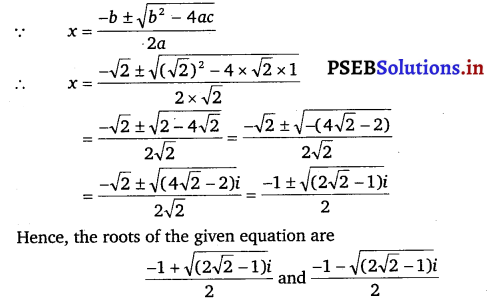
![]()




